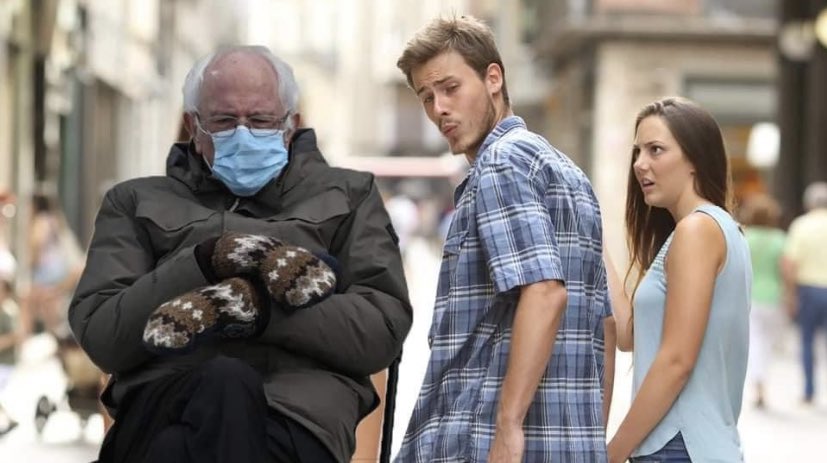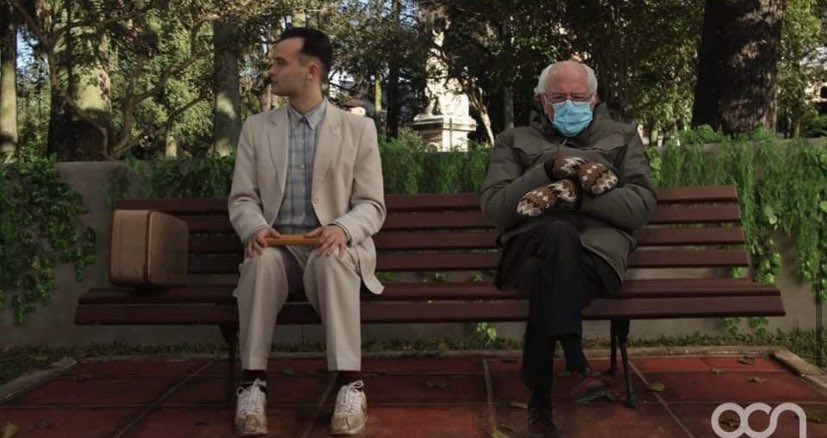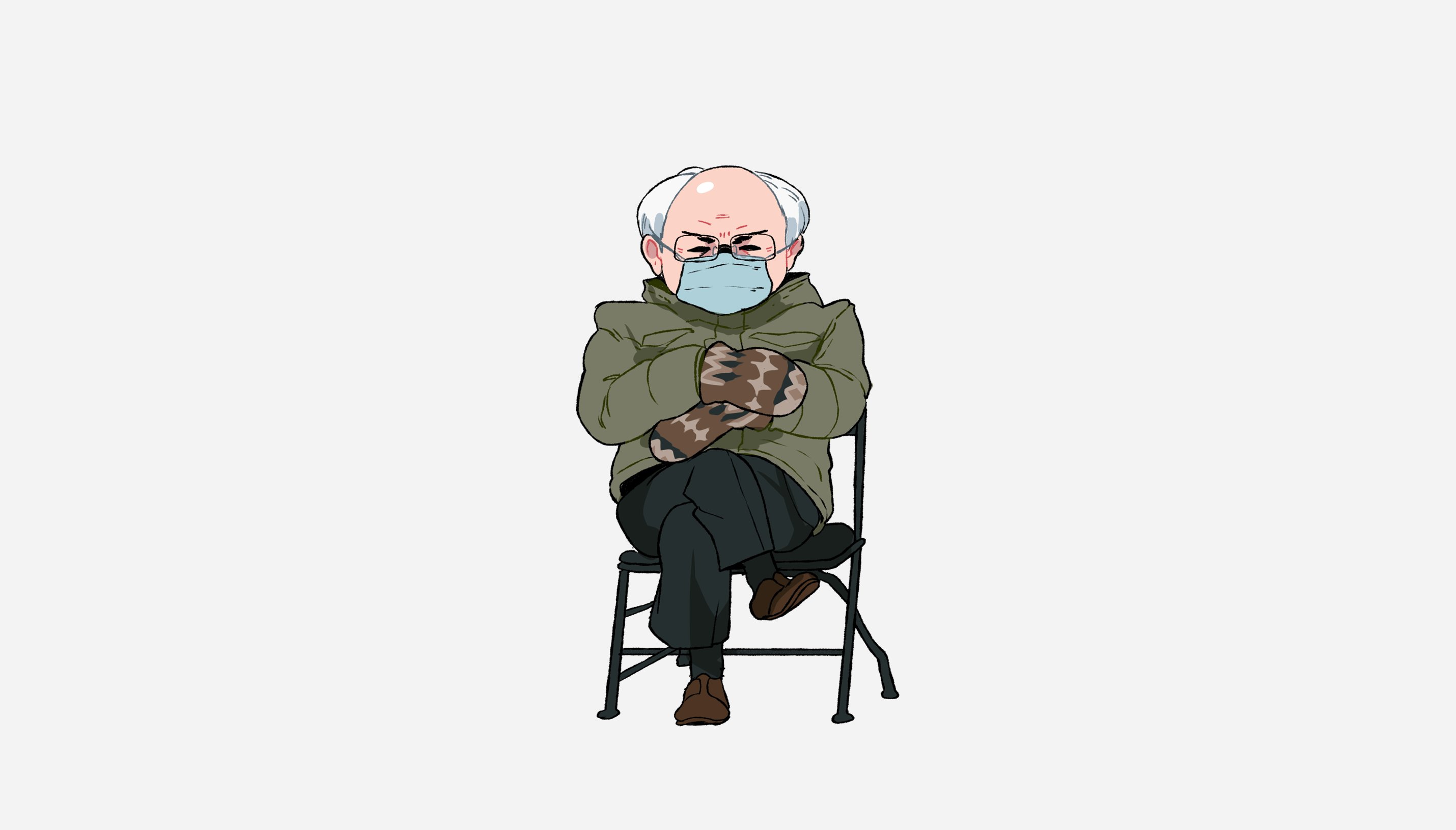fought tirelessly
- Jan 2021
-
berniesanders.com berniesanders.com
-
-
most exciting and livable small cities in America
-
he moved to Vermont
-
third term in the U.S. Senate
-
next President of the United States
-
sole congressman
-
U.S. Senator from Vermont
-
Bernie Sanders
-
-
trumpwhitehouse.archives.gov trumpwhitehouse.archives.gov
-
found on this server
-
- Nov 2020
-
marginalsyllab.us marginalsyllab.us
-
JErEMIAh (rEMI) KALIr
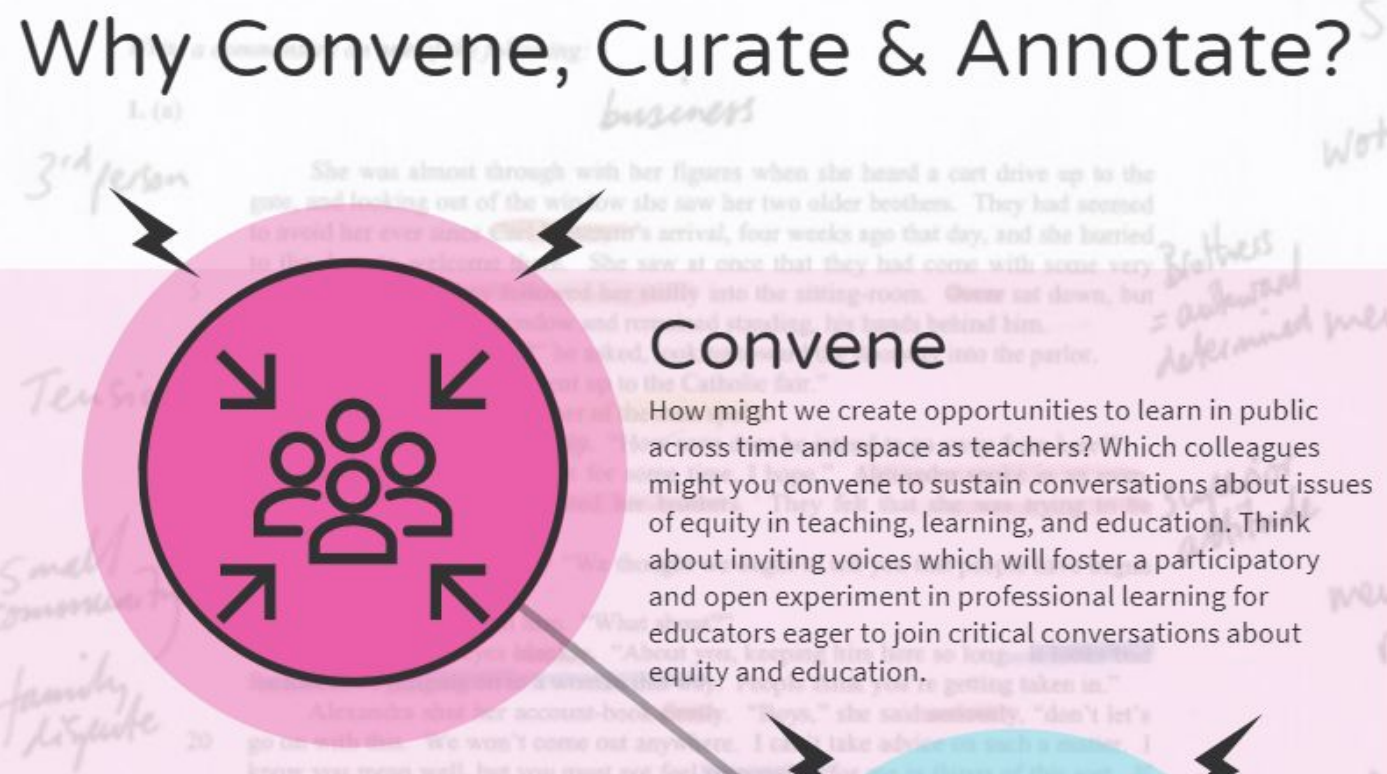 If you are joining an annotation conversation for the first time, or if you are using Hypothesis to annotate for the first time, here are a few useful notes and resources:
If you are joining an annotation conversation for the first time, or if you are using Hypothesis to annotate for the first time, here are a few useful notes and resources:- [Why annotate?] (https://s15138.pcdn.co/wp-content/uploads/2019/10/Why_-Infographic.pdf) Michelle King of the Western Pennsylvania Writing Project explores the “whys” of annotation with a focus on convening and curating dialogue, playing and noticing, and co-authoring professional learning.
- Here’s how to get started with Hypothesis and a great collection of education resources
-
-
mylearning.suny.edu mylearning.suny.edu
-
“A Talk to Teachers”
 If you are joining an annotation conversation for the first time, or if you are using Hypothesis to annotate for the first time, here are a few useful notes and resources:
If you are joining an annotation conversation for the first time, or if you are using Hypothesis to annotate for the first time, here are a few useful notes and resources:- [Why annotate?] (https://s15138.pcdn.co/wp-content/uploads/2019/10/Why_-Infographic.pdf) Michelle King of the Western Pennsylvania Writing Project explores the “whys” of annotation with a focus on convening and curating dialogue, playing and noticing, and co-authoring professional learning.
- Here’s how to get started with Hypothesis and a great collection of education resources
-
-
-
Why
 If you are joining an annotation conversation for the first time, or if you are using Hypothesis to annotate for the first time, here are a few useful notes and resources:
If you are joining an annotation conversation for the first time, or if you are using Hypothesis to annotate for the first time, here are a few useful notes and resources:- [Why annotate?] (https://s15138.pcdn.co/wp-content/uploads/2019/10/Why_-Infographic.pdf) Michelle King of the Western Pennsylvania Writing Project explores the “whys” of annotation with a focus on convening and curating dialogue, playing and noticing, and co-authoring professional learning.
- Here’s how to get started with Hypothesis and a great collection of education resources
-
-
-
This post was written by NCTE member Cody Miller.
 If you are joining an annotation conversation for the first time, or if you are using Hypothesis to annotate for the first time, here are a few useful notes and resources:
If you are joining an annotation conversation for the first time, or if you are using Hypothesis to annotate for the first time, here are a few useful notes and resources:- [Why annotate?] (https://s15138.pcdn.co/wp-content/uploads/2019/10/Why_-Infographic.pdf) Michelle King of the Western Pennsylvania Writing Project explores the “whys” of annotation with a focus on convening and curating dialogue, playing and noticing, and co-authoring professional learning.
- Here’s how to get started with Hypothesis and a great collection of [education resources](https://web.hypothes.is/education/
- And thank you, Cody, for welcoming us to read, annotate, and discuss your post!
-
- Sep 2020
-
docs.google.com docs.google.com
-
Random text to be annotated
Howdy folks!
-
-
www.youtube.com www.youtube.com
-
he grew up in five points
-
-
www.edumatchpublishing.com www.edumatchpublishing.com
-
Black Lives Matter at School Week
More about Black Lives Matter at School
-
their preparation and passion to do the work that demonstrates Black lives matter may be met with resistance
And that they may also face similar resistance once teaching in their own classrooms. Case in point - this summer, my students (most of whom are either educators or school leaders) and I discussed the pedagogy and advocacy of Zakia Jarrett in this report "Teacher Calls For Anti-Racism Curriculum After She Was Put On Leave Over Remarks On Police Violence." Supporting pre-service teachers to develop strategies to manage such resistance is needed!
-
Do 1, Watch/Listen 2, Read/Explore 3: A Protocol For Individual Anti-Racism Work
 If you are joining an annotation conversation for the first time, or if you are using Hypothesis to annotate for the first time, here are a few useful notes and resources:
If you are joining an annotation conversation for the first time, or if you are using Hypothesis to annotate for the first time, here are a few useful notes and resources:- [Why annotate?] (https://s15138.pcdn.co/wp-content/uploads/2019/10/Why_-Infographic.pdf) Michelle King of the Western Pennsylvania Writing Project explores the “whys” of annotation with a focus on convening and curating dialogue, playing and noticing, and co-authoring professional learning.
- Here’s how to get started with Hypothesis and a great collection of education resources
-
-
marginalsyllab.us marginalsyllab.us
-
“Thereis a Balmin Gilead”:
 If you are joining an annotation conversation for the first time, or if you are using Hypothesis to annotate for the first time, here are a few useful notes and resources:
If you are joining an annotation conversation for the first time, or if you are using Hypothesis to annotate for the first time, here are a few useful notes and resources:- [Why annotate?] (https://s15138.pcdn.co/wp-content/uploads/2019/10/Why_-Infographic.pdf) Michelle King of the Western Pennsylvania Writing Project explores the “whys” of annotation with a focus on convening and curating dialogue, playing and noticing, and co-authoring professional learning.
- Here’s how to get started with Hypothesis and a great collection of education resources
-
-
-
learning is listening to “the space between the quotes.” an experiment in imagining just worlds in education
 If you are joining an annotation conversation for the first time, or if you are using Hypothesis to annotate for the first time, here are a few useful notes and resources:
If you are joining an annotation conversation for the first time, or if you are using Hypothesis to annotate for the first time, here are a few useful notes and resources:- [Why annotate?] (https://s15138.pcdn.co/wp-content/uploads/2019/10/Why_-Infographic.pdf) Michelle King of the Western Pennsylvania Writing Project explores the “whys” of annotation with a focus on convening and curating dialogue, playing and noticing, and co-authoring professional learning.
- Here’s how to get started with Hypothesis and a great collection of education resources
-
-
marginalsyllab.us marginalsyllab.us
-
Critical race parenting in the Trump era: a Sisyphean endeavor? A parable
 If you are joining an annotation conversation for the first time, or if you are using Hypothesis to annotate for the first time, here are a few useful notes and resources:
If you are joining an annotation conversation for the first time, or if you are using Hypothesis to annotate for the first time, here are a few useful notes and resources:- [Why annotate?] (https://s15138.pcdn.co/wp-content/uploads/2019/10/Why_-Infographic.pdf) Michelle King of the Western Pennsylvania Writing Project explores the “whys” of annotation with a focus on convening and curating dialogue, playing and noticing, and co-authoring professional learning.
- Here’s how to get started with Hypothesis and a great collection of education resources
-
-
marginalsyllab.us marginalsyllab.us
-
2
Hey 7712 - Please note this is the PUBLIC layer and you'll want to jump into our private course group for our annotation conversation.
-
-
marginalsyllab.us marginalsyllab.us
-
Overview
Hey 7712 - Please note this is the PUBLIC layer and you'll want to jump into our private course group for our annotation conversation.
-
- Aug 2020
-
marginalsyllab.us marginalsyllab.us
-
Cognitive
Hey 7712 - Please note this is the PUBLIC layer. Our course will be annotating via a private group. When you click Public, above, you'll be to select our private group - and it's on that private layer where you'll then see annotations from me and your peers.
-
-
marginalsyllab.us marginalsyllab.us
-
How
Hey 7712 - Please note this is the PUBLIC layer. Our course will be annotating via a private group. When you click Public, above, you'll be to select our private group - and it's on that private layer where you'll then see annotations from me and your peers.
-
-
marginalsyllab.us marginalsyllab.us
-
The Philosophical
Welcome to our course's social annotation and discussion of Mack (2010). Please note that this annotation has been added to the Public layer; you'll see "Public" in the top left corder of the Hypothesis sidebar above.
Our course will be annotating via a private group. When you click Public, above, you'll be to select our private group - and it's on that private layer where you'll then see annotations from me and your peers. Questions? Please ask via Slack.
-
-
marginalsyllab.us marginalsyllab.us
-
2
Welcome to our course's social annotation and discussion of Alvesson and Sköldberg (2017). Please note that this annotation has been added to the Public layer; you'll see "Public" in the top left corder of the Hypothesis sidebar above.
Our course will be annotating via a private group. When you click Public, above, you'll be to select our private group - and it's on that private layer where you'll then see annotations from me and your peers. Questions? Please ask via Slack.
-
-
marginalsyllab.us marginalsyllab.us
-
Learning
Welcome to our course's social annotation and discussion of Derry and Steinkuehler. Please note that this annotation has been added to the Public layer; you'll see "Public" in the top left corder of the Hypothesis sidebar above.
Our course will be annotating via a private group. When you click Public, above, you'll be to select our private group - and it's on that private layer where you'll then see annotations from me and your peers. Questions? Please ask via Slack.
-
- Jun 2020
-
www.gutenberg.org www.gutenberg.org
-
on the margin of his school-books
Tags
Annotators
URL
-
- May 2020
-
educatorinnovator.org educatorinnovator.org
-
Sophia Tatiana Sarigianides
 Our thanks to partner author Sophia Sarigianides for contributing to the 2019-20 Marginal Syllabus! Dr. Sarigianides' bio is included at the end of this article.
Our thanks to partner author Sophia Sarigianides for contributing to the 2019-20 Marginal Syllabus! Dr. Sarigianides' bio is included at the end of this article. -
Performative Youth
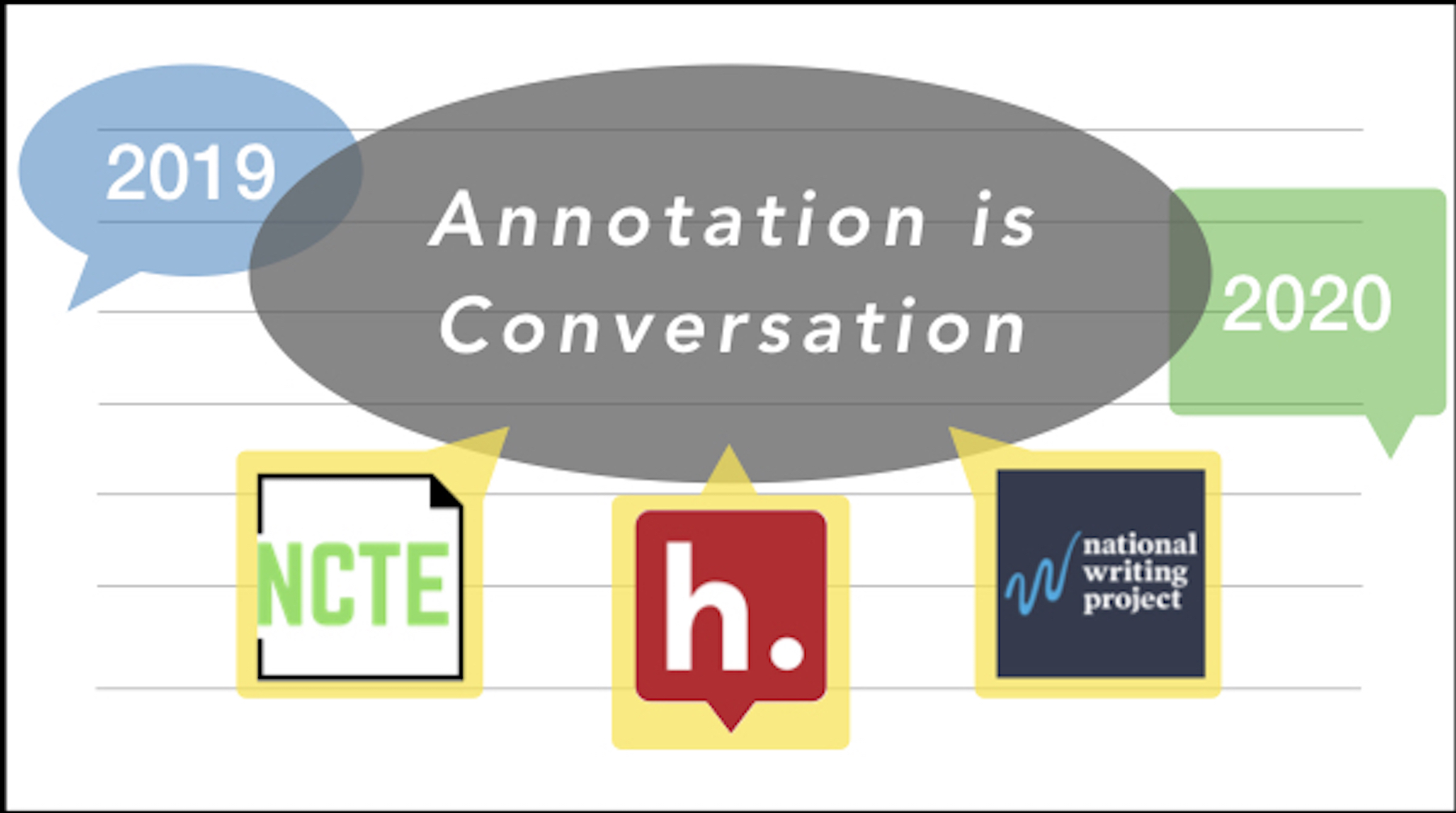 Annotation is a form of conversation.
Annotation is a form of conversation.Using Hypothesis to read socially and publicly with other people is a unique learning opportunity.
We urge Marginal Syllabus participants to share annotations that spark conversation and deepen our collective inquiry.
Consider how your annotations might elicit dialogue rather than deliver a soliloquy.
Author annotations that open spaces for other people and multiple perspectives.
Please remember that discussing educational equity - and, specifically, topics that may be perceived as debatable or incompatible with personal experience - may be a challenging and new experience for some Marginal Syllabus participants. We welcome annotation that is:
- Civil. We can disagree. And when we do so, let’s also respect one another.
- Constructive. Share what you know. And build upon ideas that are relevant and informative.
- Curious. Ask honest questions and listen openly to responses.
- Creative. Model generative dialogue. Have fun. Contribute to and learn from the process.
-
 If you are joining a Marginal Syllabus conversation for the first time, or if you are using Hypothesis to annotate for the first time, here are a few useful notes and resources:
If you are joining a Marginal Syllabus conversation for the first time, or if you are using Hypothesis to annotate for the first time, here are a few useful notes and resources:- [Why annotate?] (https://s15138.pcdn.co/wp-content/uploads/2019/10/Why_-Infographic.pdf) Michelle King of the Western Pennsylvania Writing Project explores the “whys” of annotation with a focus on convening and curating dialogue, playing and noticing, and co-authoring professional learning.
- Here’s how to get started with Hypothesis and a great collection of education resources
- Are the margins getting crowded? Here’s how to join an annotation conversation with crowded margins
- Want to annotate privately within a group? You’re very welcome to use this article for private conversation, so here’s how to create a private Hypothesis group
-
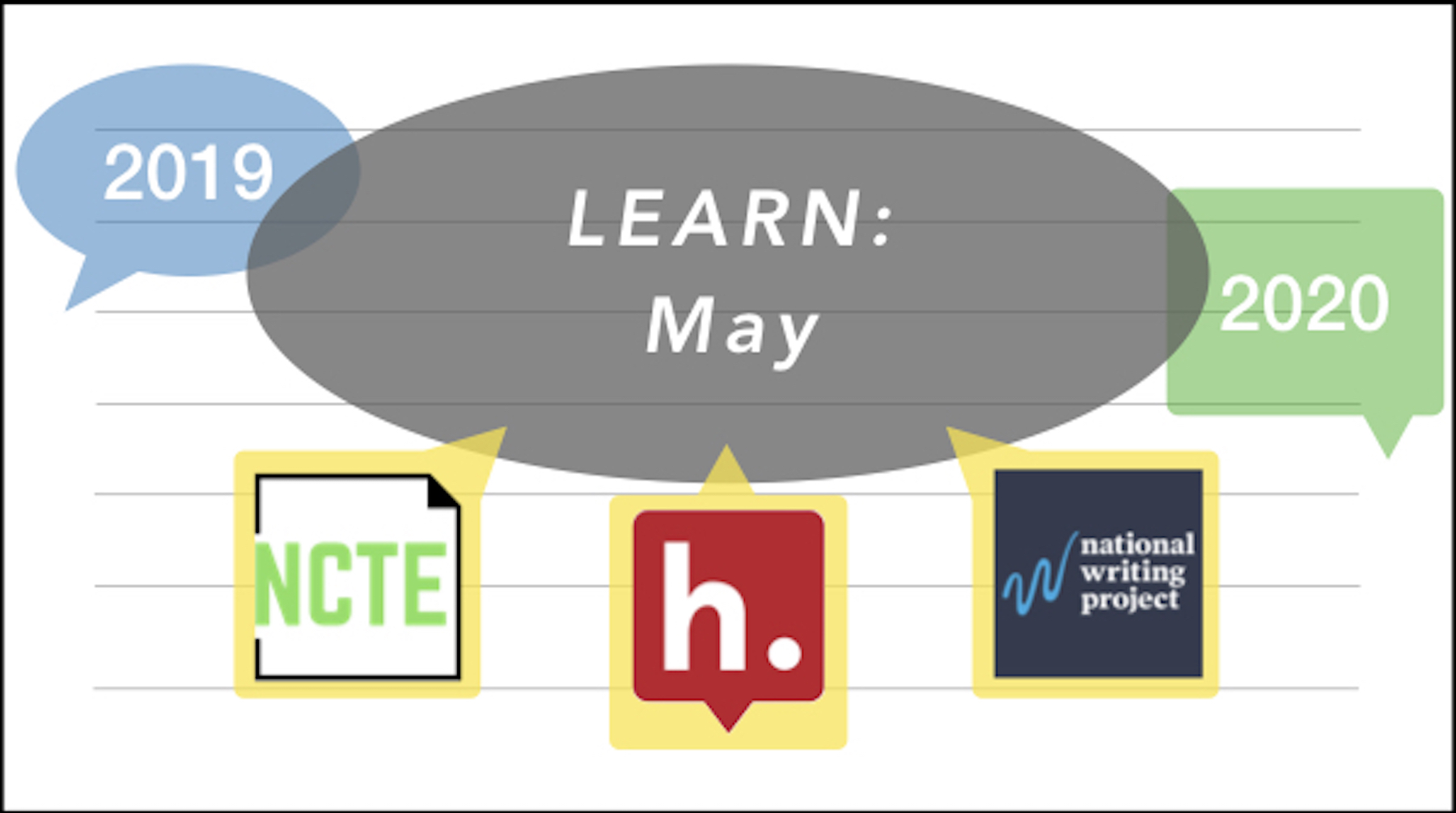 Welcome to the 2019-20 Marginal Syllabus and our May conversation! This is the seventh article we will read and publicly annotate as part of "Literacy, Equity + Remarkable Notes = LEARN." Our reading is part of the second LEARN syllabus co-developed in partnership with the National Writing Project (NWP), the National Council of Teachers of English (NCTE), and Hypothesis. The Marginal Syllabus sparks and sustains public conversation about educational equity through collaborative technologies and partnerships. What's "marginal" about the Marginal Syllabus? We partner with authors whose writing is contrary to dominant education norms, we read and annotate in the margins of online texts, and we discuss educational equity using open-source technology that’s marginal to commercial edtech.
Welcome to the 2019-20 Marginal Syllabus and our May conversation! This is the seventh article we will read and publicly annotate as part of "Literacy, Equity + Remarkable Notes = LEARN." Our reading is part of the second LEARN syllabus co-developed in partnership with the National Writing Project (NWP), the National Council of Teachers of English (NCTE), and Hypothesis. The Marginal Syllabus sparks and sustains public conversation about educational equity through collaborative technologies and partnerships. What's "marginal" about the Marginal Syllabus? We partner with authors whose writing is contrary to dominant education norms, we read and annotate in the margins of online texts, and we discuss educational equity using open-source technology that’s marginal to commercial edtech.
-
- Apr 2020
-
example.com example.com
-
10 millionth annotation
indeed, we're on this journey together
congrats, team
you've already made a lasting difference in the lives of countless students and educators
here's to 10 million more
-
-
www.nobelprize.org www.nobelprize.org
-
limn
Antero Garcia and I have authored a book about annotation titled "Annotation" that is forthcoming from the MIT Press. We reference this speech by Morrison in the beginning of our chapter that examines the ways in which annotation provides information. Here's the opening of that chapter:
"In 1993, Morrison was awarded the Nobel Prize in Literature for 'novels characterized by visionary force and poetic import.' In her Nobel Lecture, she noted how language, whether spoken or written, can limn, or describe and detail, life. Derived from the Latin illuminare, meaning to 'make light' or 'illuminate,' limn has been used throughout literary history to generally describe—and convey the literal illustration of—a manuscript. One affordance of annotation is that it enables readers and writers to limn, or describe, their texts. In doing so, how does such annotation provide information?"
-
Toni Morrison Nobel Lecture
 If you are joining an annotation conversation for the first time, or if you are using Hypothesis to annotate for the first time, here are a few useful notes and resources:
If you are joining an annotation conversation for the first time, or if you are using Hypothesis to annotate for the first time, here are a few useful notes and resources:- [Why annotate?] (https://s15138.pcdn.co/wp-content/uploads/2019/10/Why_-Infographic.pdf) Michelle King of the Western Pennsylvania Writing Project explores the “whys” of annotation with a focus on convening and curating dialogue, playing and noticing, and co-authoring professional learning.
- Here’s how to get started with Hypothesis and a great collection of education resources
-
-
www.georgiageorgia.org www.georgiageorgia.org
-
How Long is Never?
 If you are joining an annotation conversation for the first time, or if you are using Hypothesis to annotate for the first time, here are a few useful notes and resources:
If you are joining an annotation conversation for the first time, or if you are using Hypothesis to annotate for the first time, here are a few useful notes and resources:- [Why annotate?] (https://s15138.pcdn.co/wp-content/uploads/2019/10/Why_-Infographic.pdf) Michelle King of the Western Pennsylvania Writing Project explores the “whys” of annotation with a focus on convening and curating dialogue, playing and noticing, and co-authoring professional learning.
- Here’s how to get started with Hypothesis and a great collection of education resources
-
-
-
On the History (and Future) of YA and Speculative Fiction by Black Women
 If you are joining an annotation conversation for the first time, or if you are using Hypothesis to annotate for the first time, here are a few useful notes and resources:
If you are joining an annotation conversation for the first time, or if you are using Hypothesis to annotate for the first time, here are a few useful notes and resources:- [Why annotate?] (https://s15138.pcdn.co/wp-content/uploads/2019/10/Why_-Infographic.pdf) Michelle King of the Western Pennsylvania Writing Project explores the “whys” of annotation with a focus on convening and curating dialogue, playing and noticing, and co-authoring professional learning.
- Here’s how to get started with Hypothesis and a great collection of education resources
-
-
libguides.unco.edu libguides.unco.edu
-
Marginal Syllabus
The Marginal Syllabus sparks and sustains public conversation about educational equity through collaborative technologies and partnerships. What's "marginal" about the Marginal Syllabus? We partner with authors whose writing is contrary to dominant education norms, we read and annotate in the margins of online texts, and we discuss educational equity using open-source technology that’s marginal to commercial edtech.
The 2019-20 Marginal Syllabus is titled "Literacy, Equity + Remarkable Notes = LEARN" and was co-developed in partnership with the National Writing Project (NWP), the National Council of Teachers of English (NCTE), and Hypothesis.
-
a long history of people scribbling in the margins of books
for example, check out the Book Traces project
-
new book
forthcoming in early 2021 from the MIT Press
-
friend and colleague
thanks, Matt!
-
paradigm
paradigm shift?
-
-
educatorinnovator.org educatorinnovator.org
-
Ashley s.boyd■jAcindAmille
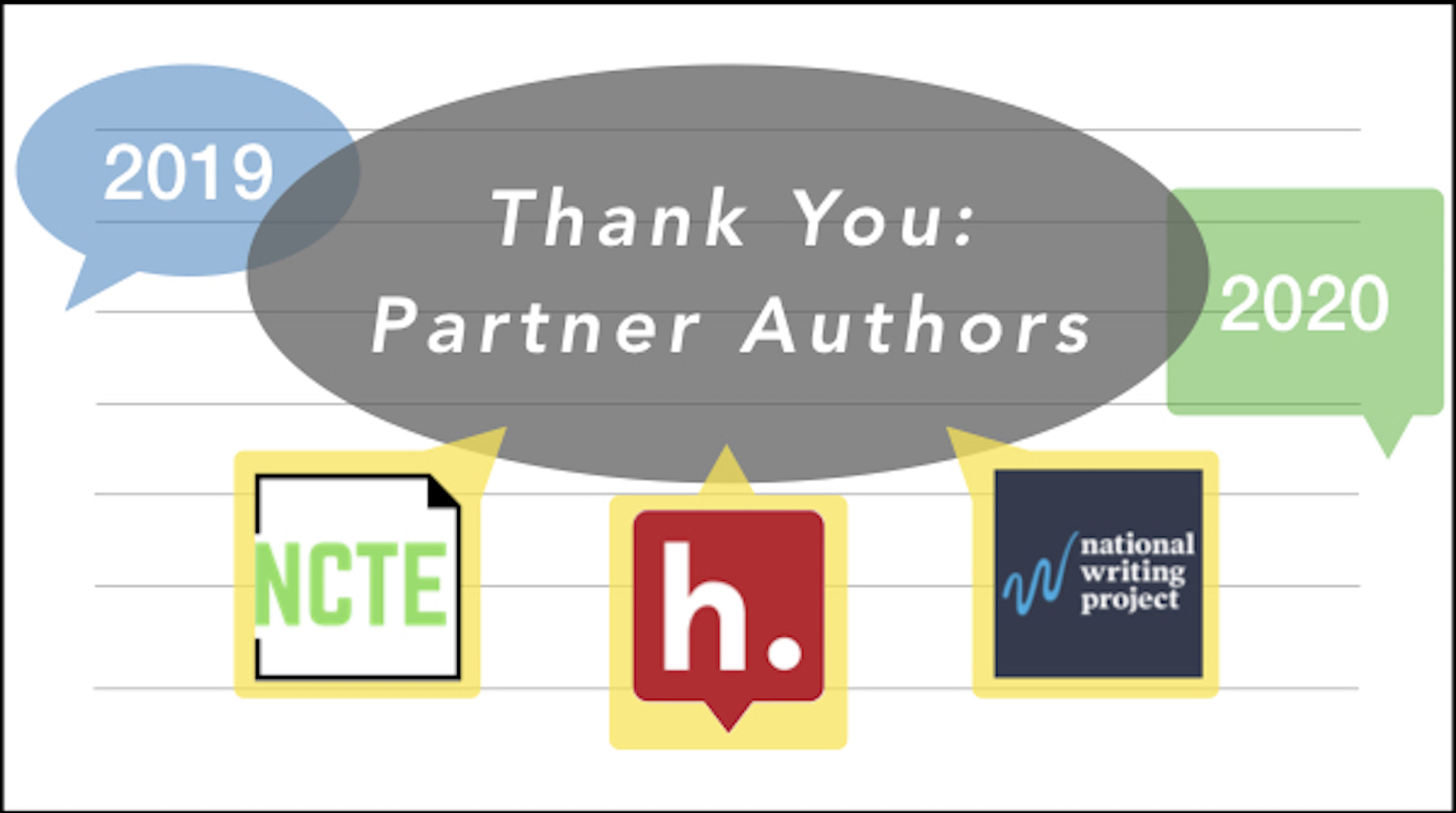 Our thanks to partner authors Ashley Boyd and Jacinda Miller for contributing to the 2019-20 Marginal Syllabus!
Our thanks to partner authors Ashley Boyd and Jacinda Miller for contributing to the 2019-20 Marginal Syllabus! -
Classroom
 Annotation is a form of conversation.
Annotation is a form of conversation.Using Hypothesis to read socially and publicly with other people is a unique learning opportunity.
We urge Marginal Syllabus participants to share annotations that spark conversation and deepen our collective inquiry.
Consider how your annotations might elicit dialogue rather than deliver a soliloquy.
Author annotations that open spaces for other people and multiple perspectives.
Please remember that discussing educational equity - and, specifically, topics that may be perceived as debatable or incompatible with personal experience - may be a challenging and new experience for some Marginal Syllabus participants. We welcome annotation that is:
- Civil. We can disagree. And when we do so, let’s also respect one another.
- Constructive. Share what you know. And build upon ideas that are relevant and informative.
- Curious. Ask honest questions and listen openly to responses.
- Creative. Model generative dialogue. Have fun. Contribute to and learn from the process.
-
 If you are joining a Marginal Syllabus conversation for the first time, or if you are using Hypothesis to annotate for the first time, here are a few useful notes and resources:
If you are joining a Marginal Syllabus conversation for the first time, or if you are using Hypothesis to annotate for the first time, here are a few useful notes and resources:- [Why annotate?] (https://s15138.pcdn.co/wp-content/uploads/2019/10/Why_-Infographic.pdf) Michelle King of the Western Pennsylvania Writing Project explores the “whys” of annotation with a focus on convening and curating dialogue, playing and noticing, and co-authoring professional learning.
- Here’s how to get started with Hypothesis and a great collection of education resources
- Are the margins getting crowded? Here’s how to join an annotation conversation with crowded margins
- Want to annotate privately within a group? You’re very welcome to use this article for private conversation, so here’s how to create a private Hypothesis group
-
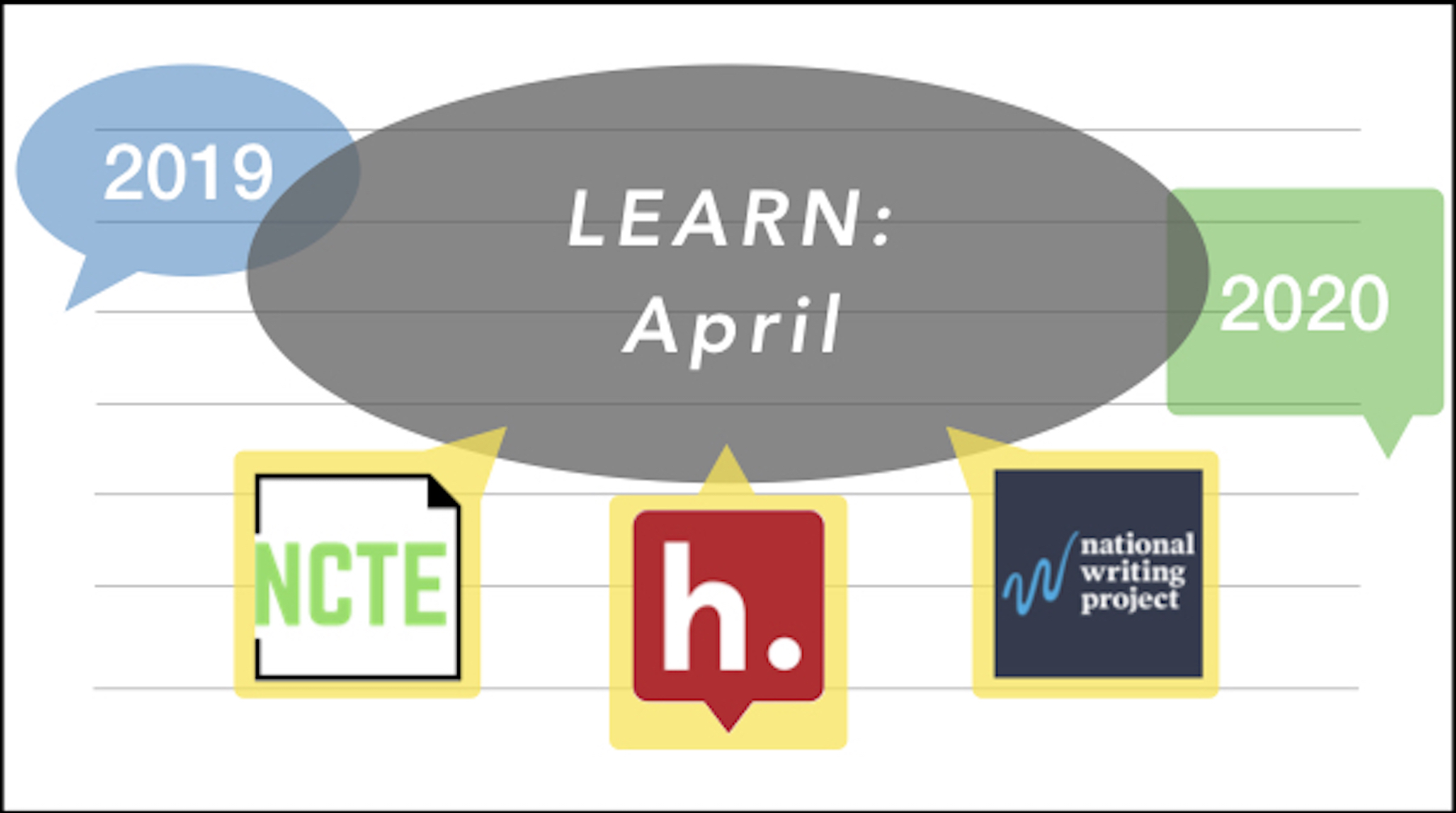 Welcome to the 2019-20 Marginal Syllabus and our April conversation! This is the sixth article we will read and publicly annotate as part of "Literacy, Equity + Remarkable Notes = LEARN." Our reading is part of the second LEARN syllabus co-developed in partnership with the National Writing Project (NWP), the National Council of Teachers of English (NCTE), and Hypothesis. The Marginal Syllabus sparks and sustains public conversation about educational equity through collaborative technologies and partnerships. What's "marginal" about the Marginal Syllabus? We partner with authors whose writing is contrary to dominant education norms, we read and annotate in the margins of online texts, and we discuss educational equity using open-source technology that’s marginal to commercial edtech.
Welcome to the 2019-20 Marginal Syllabus and our April conversation! This is the sixth article we will read and publicly annotate as part of "Literacy, Equity + Remarkable Notes = LEARN." Our reading is part of the second LEARN syllabus co-developed in partnership with the National Writing Project (NWP), the National Council of Teachers of English (NCTE), and Hypothesis. The Marginal Syllabus sparks and sustains public conversation about educational equity through collaborative technologies and partnerships. What's "marginal" about the Marginal Syllabus? We partner with authors whose writing is contrary to dominant education norms, we read and annotate in the margins of online texts, and we discuss educational equity using open-source technology that’s marginal to commercial edtech.
-
- Mar 2020
-
inst-fs-iad-prod.inscloudgate.net inst-fs-iad-prod.inscloudgate.net
-
California Common Core State Stan-dards and California English Language Development Standards.
important that this youth-led participatory action research was aligned with and supported by more formal curricular standards (state, federal)
-
- Feb 2020
-
educatorinnovator.org educatorinnovator.org
-
“Untold Stories”:
 Annotation is a form of conversation.
Annotation is a form of conversation.Using Hypothesis to read socially and publicly with other people is a unique learning opportunity.
We urge Marginal Syllabus participants to share annotations that spark conversation and deepen our collective inquiry.
Consider how your annotations might elicit dialogue rather than deliver a soliloquy.
Author annotations that open spaces for other people and multiple perspectives.
Please remember that discussing educational equity - and, specifically, topics that may be perceived as debatable or incompatible with personal experience - may be a challenging and new experience for some Marginal Syllabus participants. We welcome annotation that is:
- Civil. We can disagree. And when we do so, let’s also respect one another.
- Constructive. Share what you know. And build upon ideas that are relevant and informative.
- Curious. Ask honest questions and listen openly to responses.
- Creative. Model generative dialogue. Have fun. Contribute to and learn from the process.
-
Sakeena Everett
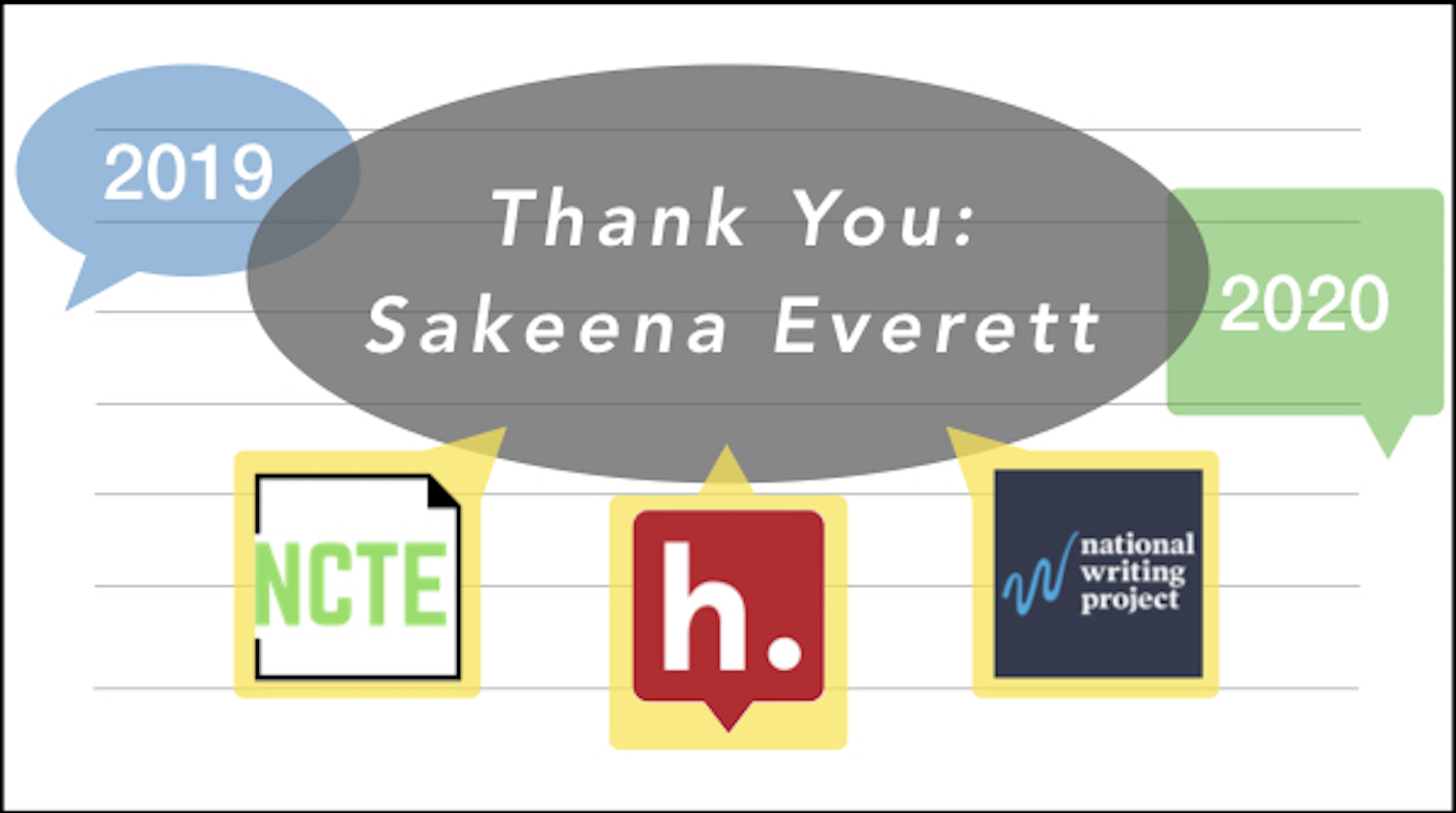 Our thanks to partner author Dr. Sakeena Everett for contributing to the 2019-20 Marginal Syllabus! This is the second time that Dr. Everett has joined the Marginal Syllabus as a partner author, having previously done so during the 2017-18 Writing Our Civic Futures syllabus - please also read her co-authored article, and the associated annotation conversation, about pedagogies of healing and critical media literacy. Dr. Everett's bio also appears at the end of this article.
Our thanks to partner author Dr. Sakeena Everett for contributing to the 2019-20 Marginal Syllabus! This is the second time that Dr. Everett has joined the Marginal Syllabus as a partner author, having previously done so during the 2017-18 Writing Our Civic Futures syllabus - please also read her co-authored article, and the associated annotation conversation, about pedagogies of healing and critical media literacy. Dr. Everett's bio also appears at the end of this article. -
 If you are joining a Marginal Syllabus conversation for the first time, or if you are using Hypothesis to annotate for the first time, here are a few useful notes and resources:
If you are joining a Marginal Syllabus conversation for the first time, or if you are using Hypothesis to annotate for the first time, here are a few useful notes and resources:- [Why annotate?] (https://s15138.pcdn.co/wp-content/uploads/2019/10/Why_-Infographic.pdf) Michelle King of the Western Pennsylvania Writing Project explores the “whys” of annotation with a focus on convening and curating dialogue, playing and noticing, and co-authoring professional learning.
- Here’s how to get started with Hypothesis and a great collection of education resources
- Are the margins getting crowded? Here’s how to join an annotation conversation with crowded margins
- Want to annotate privately within a group? You’re very welcome to use this article for private conversation, so here’s how to create a private Hypothesis group
-
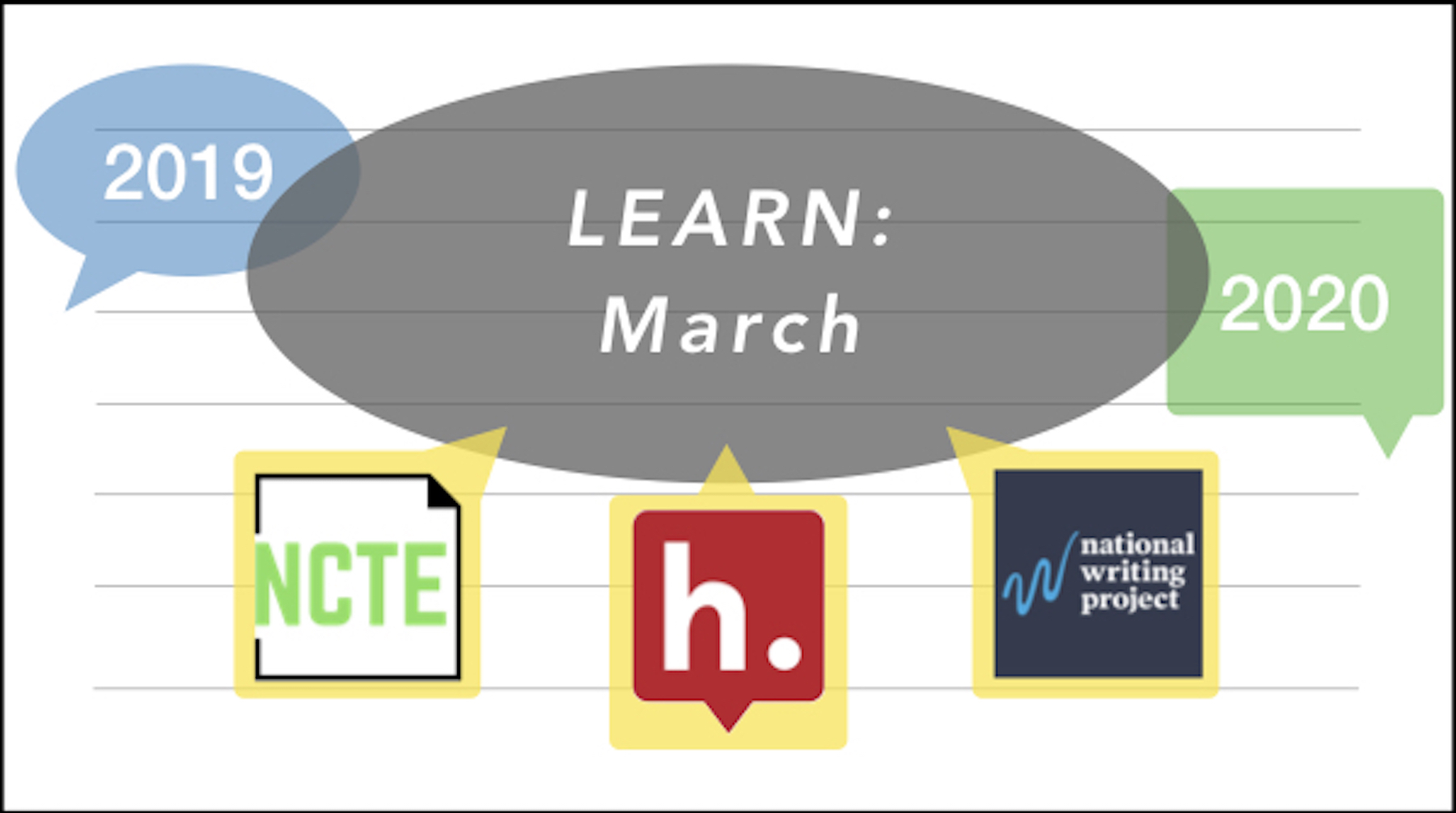 Welcome to the 2019-20 Marginal Syllabus and our March conversation! This is the fifth article we will read and publicly annotate as part of "Literacy, Equity + Remarkable Notes = LEARN." Our reading is part of the second LEARN syllabus co-developed in partnership with the National Writing Project (NWP), the National Council of Teachers of English (NCTE), and Hypothesis. The Marginal Syllabus sparks and sustains public conversation about educational equity through collaborative technologies and partnerships. What's "marginal" about the Marginal Syllabus? We partner with authors whose writing is contrary to dominant education norms, we read and annotate in the margins of online texts, and we discuss educational equity using open-source technology that’s marginal to commercial edtech.
Welcome to the 2019-20 Marginal Syllabus and our March conversation! This is the fifth article we will read and publicly annotate as part of "Literacy, Equity + Remarkable Notes = LEARN." Our reading is part of the second LEARN syllabus co-developed in partnership with the National Writing Project (NWP), the National Council of Teachers of English (NCTE), and Hypothesis. The Marginal Syllabus sparks and sustains public conversation about educational equity through collaborative technologies and partnerships. What's "marginal" about the Marginal Syllabus? We partner with authors whose writing is contrary to dominant education norms, we read and annotate in the margins of online texts, and we discuss educational equity using open-source technology that’s marginal to commercial edtech.
-
- Jan 2020
-
via3.hypothes.is via3.hypothes.is
-
Vaughn W. M. Watson Michigan State UniversityAlecia Beymer Michigan State University
 Our thanks to partner authors Vaughn W. M. Watson and Alecia Beymer for contributing to the 2019-20 Marginal Syllabus! Brief bios for each partner author are included at the end of the article
Our thanks to partner authors Vaughn W. M. Watson and Alecia Beymer for contributing to the 2019-20 Marginal Syllabus! Brief bios for each partner author are included at the end of the article -
Praisesongs of Place
 Annotation is a form of conversation.
Annotation is a form of conversation.Using Hypothesis to read socially and publicly with other people is a unique learning opportunity.
We urge Marginal Syllabus participants to share annotations that spark conversation and deepen our collective inquiry.
Consider how your annotations might elicit dialogue rather than deliver a soliloquy.
Author annotations that open spaces for other people and multiple perspectives.
Please remember that discussing educational equity - and, specifically, topics that may be perceived as debatable or incompatible with personal experience - may be a challenging and new experience for some Marginal Syllabus participants. We welcome annotation that is:
- Civil. We can disagree. And when we do so, let’s also respect one another.
- Constructive. Share what you know. And build upon ideas that are relevant and informative.
- Curious. Ask honest questions and listen openly to responses.
- Creative. Model generative dialogue. Have fun. Contribute to and learn from the process.
-
 If you are joining a Marginal Syllabus conversation for the first time, or if you are using Hypothesis to annotate for the first time, here are a few useful notes and resources:
If you are joining a Marginal Syllabus conversation for the first time, or if you are using Hypothesis to annotate for the first time, here are a few useful notes and resources:- [Why annotate?] (https://s15138.pcdn.co/wp-content/uploads/2019/10/Why_-Infographic.pdf) Michelle King of the Western Pennsylvania Writing Project explores the “whys” of annotation with a focus on convening and curating dialogue, playing and noticing, and co-authoring professional learning.
- Here’s how to get started with Hypothesis and a great collection of education resources
- Are the margins getting crowded? Here’s how to join an annotation conversation with crowded margins
- Want to annotate privately within a group? You’re very welcome to use this article for private conversation, so here’s how to create a private Hypothesis group
-
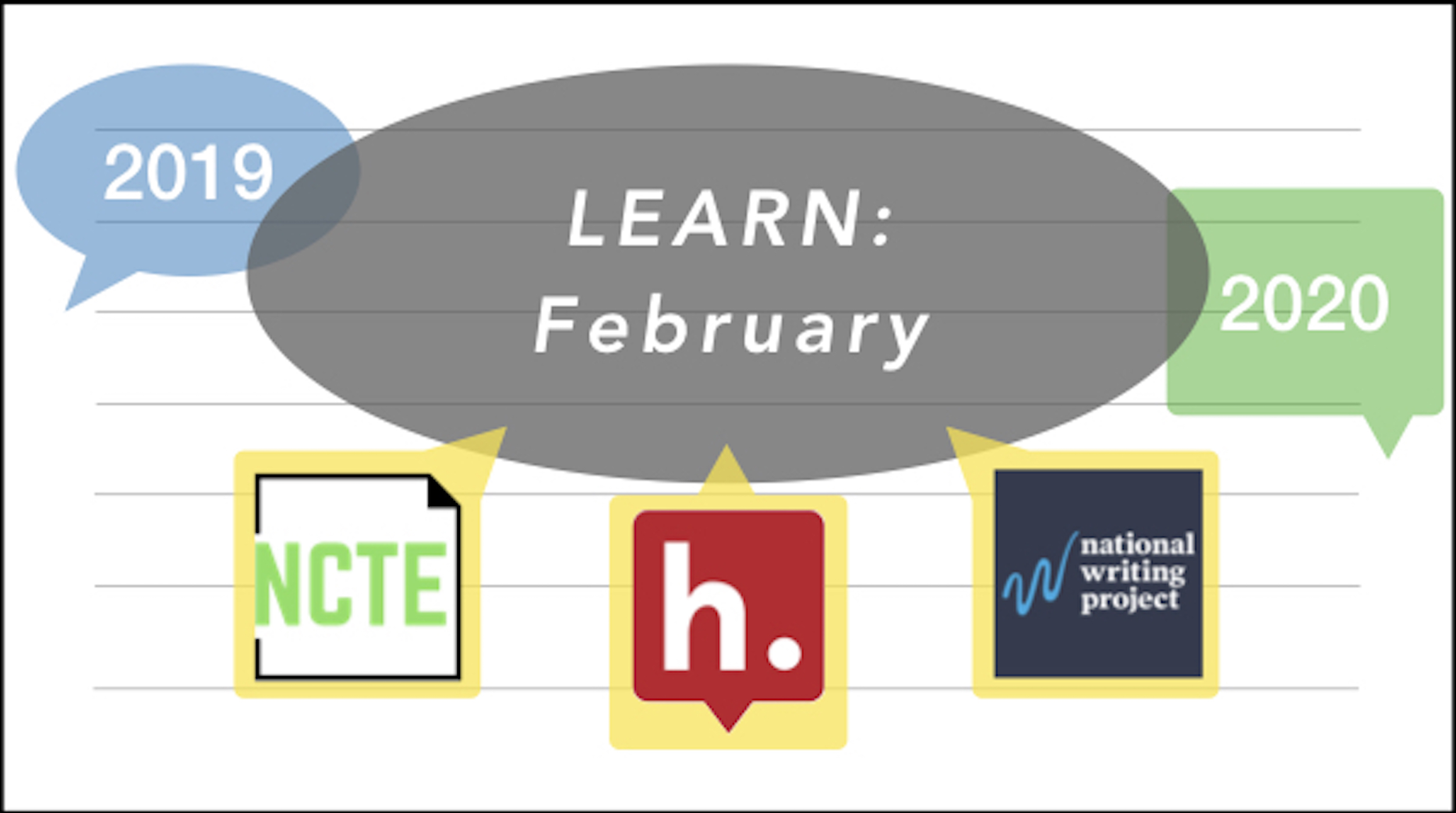 Welcome to the 2019-20 Marginal Syllabus and our February conversation! This is the fourth article we will read and publicly annotate as part of "Literacy, Equity + Remarkable Notes = LEARN." Our reading is part of the second LEARN syllabus co-developed in partnership with the National Writing Project (NWP), the National Council of Teachers of English (NCTE), and Hypothesis. The Marginal Syllabus sparks and sustains public conversation about educational equity through collaborative technologies and partnerships. What's "marginal" about the Marginal Syllabus? We partner with authors whose writing is contrary to dominant education norms, we read and annotate in the margins of online texts, and we discuss educational equity using open-source technology that’s marginal to commercial edtech.
Welcome to the 2019-20 Marginal Syllabus and our February conversation! This is the fourth article we will read and publicly annotate as part of "Literacy, Equity + Remarkable Notes = LEARN." Our reading is part of the second LEARN syllabus co-developed in partnership with the National Writing Project (NWP), the National Council of Teachers of English (NCTE), and Hypothesis. The Marginal Syllabus sparks and sustains public conversation about educational equity through collaborative technologies and partnerships. What's "marginal" about the Marginal Syllabus? We partner with authors whose writing is contrary to dominant education norms, we read and annotate in the margins of online texts, and we discuss educational equity using open-source technology that’s marginal to commercial edtech.
-
-
docs.google.com docs.google.com
-
INTE 7130 Professional Learning: Perspectives and Practices
Are you reading this? If so, you're on the Public layer of Hypothesis (note the Public designation on the drop down above this annotation card to the left). In Professional Learning we'll be annotating in a private group so that only people in our course can read what we write and respond to us. To join our private group, you'll need to click on the link shared via Slack in the #annotation_hypothesis channel. And once you've joined our private group, you'll be able to toggle from the Public layer into our private INTE 7130 S20 private group. And when you're in our private group, you'll see additional annotations from me pertinent to our course.
-
-
docs.google.com docs.google.com
-
INTE 4320/5320 Games and Learning
Are you reading this? If so, you're on the Public layer of Hypothesis (note the Public designation on the drop down above this annotation card to the left). In Games and Learning we'll be annotating in a private group so that only people in our course can read what we write and respond to us. To join our private group, you'll need to click on the link shared via Slack in the #annotation_hypothesis channel. And once you've joined our private group, you'll be able to toggle from the Public layer into our private INTE 4/5320 S20 private group. And when you're in our private group, you'll see additional annotations from me pertinent to our course.
-
-
www.eapoe.org www.eapoe.org
-
During a rainy afternoon, not long ago, being in a mood too listless for continuous study, I sought relief from ennui in dipping here and there, at random, among the volumes of my library — no very large one, certainly, but sufficiently miscellaneous; and, I flatter myself, not a little recherché. Perhaps it was what the Germans call the “brain-scattering” humor of the moment; but, while the picturesqueness of the numerous pencil-scratches arrested my attention, their helter-skelter-iness of commentary amused me. I found myself at length, forming a wish that it had been some other hand than my own which had so bedevilled the books, and fancying that, in such case, I might have derived no inconsiderable pleasure from turning them over.
Tags
Annotators
URL
-
-
www.theguardian.com www.theguardian.com
-
For a machine learning model to “understand” a language, it needs vast amounts of text that has been annotated by linguists to teach it the building blocks of human language, from parts of speech to syntactic relationships
-
-
educatorinnovator.org educatorinnovator.org
-
Revising Resistance: A Step Toward Student-Centered Activism
 Annotation is a form of conversation.
Annotation is a form of conversation.Using Hypothesis to read socially and publicly with other people is a unique learning opportunity.
We urge Marginal Syllabus participants to share annotations that spark conversation and deepen our collective inquiry.
Consider how your annotations might elicit dialogue rather than deliver a soliloquy.
Author annotations that open spaces for other people and multiple perspectives.
Please remember that discussing educational equity - and, specifically, topics that may be perceived as debatable or incompatible with personal experience - may be a challenging and new experience for some Marginal Syllabus participants. We welcome annotation that is:
- Civil. We can disagree. And when we do so, let’s also respect one another.
- Constructive. Share what you know. And build upon ideas that are relevant and informative.
- Curious. Ask honest questions and listen openly to responses.
- Creative. Model generative dialogue. Have fun. Contribute to and learn from the process.
-
alexcorbitt
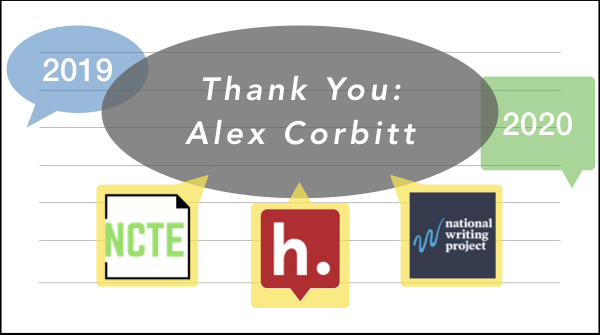 Our thanks to partner author Alex Corbitt for contributing to the 2019-20 Marginal Syllabus! To learn more about Alex visit: https://www.alexcorbitt.com/
Our thanks to partner author Alex Corbitt for contributing to the 2019-20 Marginal Syllabus! To learn more about Alex visit: https://www.alexcorbitt.com/ -
 If you are joining a Marginal Syllabus conversation for the first time, or if you are using Hypothesis to annotate for the first time, here are a few useful notes and resources:
If you are joining a Marginal Syllabus conversation for the first time, or if you are using Hypothesis to annotate for the first time, here are a few useful notes and resources:- [Why annotate?] (https://s15138.pcdn.co/wp-content/uploads/2019/10/Why_-Infographic.pdf) Michelle King of the Western Pennsylvania Writing Project explores the “whys” of annotation with a focus on convening and curating dialogue, playing and noticing, and co-authoring professional learning.
- Here’s how to get started with Hypothesis and a great collection of education resources
- Are the margins getting crowded? Here’s how to join an annotation conversation with crowded margins
- Want to annotate privately within a group? You’re very welcome to use this article for private conversation, so here’s how to create a private Hypothesis group
-
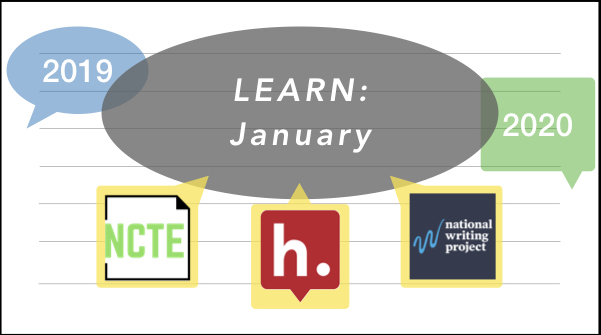 Welcome to the 2019-20 Marginal Syllabus and our January conversation! This is the third article we will read and publicly annotate as part of "Literacy, Equity + Remarkable Notes = LEARN." Our reading is part of the second LEARN syllabus co-developed in partnership with the National Writing Project (NWP), the National Council of Teachers of English (NCTE), and Hypothesis. The Marginal Syllabus sparks and sustains public conversation about educational equity through collaborative technologies and partnerships. What's "marginal" about the Marginal Syllabus? We partner with authors whose writing is contrary to dominant education norms, we read and annotate in the margins of online texts, and we discuss educational equity using open-source technology that’s marginal to commercial edtech.
Welcome to the 2019-20 Marginal Syllabus and our January conversation! This is the third article we will read and publicly annotate as part of "Literacy, Equity + Remarkable Notes = LEARN." Our reading is part of the second LEARN syllabus co-developed in partnership with the National Writing Project (NWP), the National Council of Teachers of English (NCTE), and Hypothesis. The Marginal Syllabus sparks and sustains public conversation about educational equity through collaborative technologies and partnerships. What's "marginal" about the Marginal Syllabus? We partner with authors whose writing is contrary to dominant education norms, we read and annotate in the margins of online texts, and we discuss educational equity using open-source technology that’s marginal to commercial edtech.
-
- Dec 2019
-
www.newyorker.com www.newyorker.com
-
manually coding the rules
-
labelling the training data
-
-
drive.google.com drive.google.com
-
Miles Morales: Spider-Man
As an introduction to the article, you're very welcome to watch a webinar hosted by Christopher Rogers, featuring guest reader Latrice Ferguson, and both partner authors Mario Worlds and Cody Miller. https://youtu.be/qOyMmTrf_yo
Tags
Annotators
URL
-
-
www.chronicle.com www.chronicle.com
-
connecting threads in the larger fabric
-
- Nov 2019
-
drive.google.com drive.google.com
-
mARio WoRLdS And HEnRy “Cody” miLLER
 Our thanks to partner authors Mario Worlds and Cody Miller for contributing to the 2019-20 Marginal Syllabus! Brief bios for both Mario and Cody are included at the end of this article. Also, the entire Marginal Syllabus team would like to congratulate Mario and Cody for winning the Paul and Kate Farmer English Journal Writing Award for their authorship of this article! The award was recently presented at the 2019 NCTE Annual Convention and recognizes outstanding English Journal articles written by classroom teachers - congrats!
Our thanks to partner authors Mario Worlds and Cody Miller for contributing to the 2019-20 Marginal Syllabus! Brief bios for both Mario and Cody are included at the end of this article. Also, the entire Marginal Syllabus team would like to congratulate Mario and Cody for winning the Paul and Kate Farmer English Journal Writing Award for their authorship of this article! The award was recently presented at the 2019 NCTE Annual Convention and recognizes outstanding English Journal articles written by classroom teachers - congrats! -
Mario Worlds and Cody Miller argue that to disrupt racial hierarchies we must purposefully disrupt the canon of literature.
 Annotation is a form of conversation.
Annotation is a form of conversation.Using Hypothesis to read socially and publicly with other people is a unique learning opportunity.
We urge Marginal Syllabus participants to share annotations that spark conversation and deepen our collective inquiry.
Consider how your annotations might elicit dialogue rather than deliver a soliloquy.
Author annotations that open spaces for other people and multiple perspectives.
Please remember that discussing educational equity - and, specifically, topics that may be perceived as debatable or incompatible with personal experience - may be a challenging and new experience for some Marginal Syllabus participants. We welcome annotation that is:
- Civil. We can disagree. And when we do so, let’s also respect one another.
- Constructive. Share what you know. And build upon ideas that are relevant and informative.
- Curious. Ask honest questions and listen openly to responses.
- Creative. Model generative dialogue. Have fun. Contribute to and learn from the process.
-
 If you are joining a Marginal Syllabus conversation for the first time, or if you are using Hypothesis to annotate for the first time, here are a few useful notes and resources:
If you are joining a Marginal Syllabus conversation for the first time, or if you are using Hypothesis to annotate for the first time, here are a few useful notes and resources:- [Why annotate?] (https://s15138.pcdn.co/wp-content/uploads/2019/10/Why_-Infographic.pdf) Michelle King of the Western Pennsylvania Writing Project explores the “whys” of annotation with a focus on convening and curating dialogue, playing and noticing, and co-authoring professional learning.
- Here’s how to get started with Hypothesis and a great collection of education resources
- Are the margins getting crowded? Here’s how to join an annotation conversation with crowded margins
- Want to annotate privately within a group? You’re very welcome to use this article for private conversation, so here’s how to create a private Hypothesis group
-
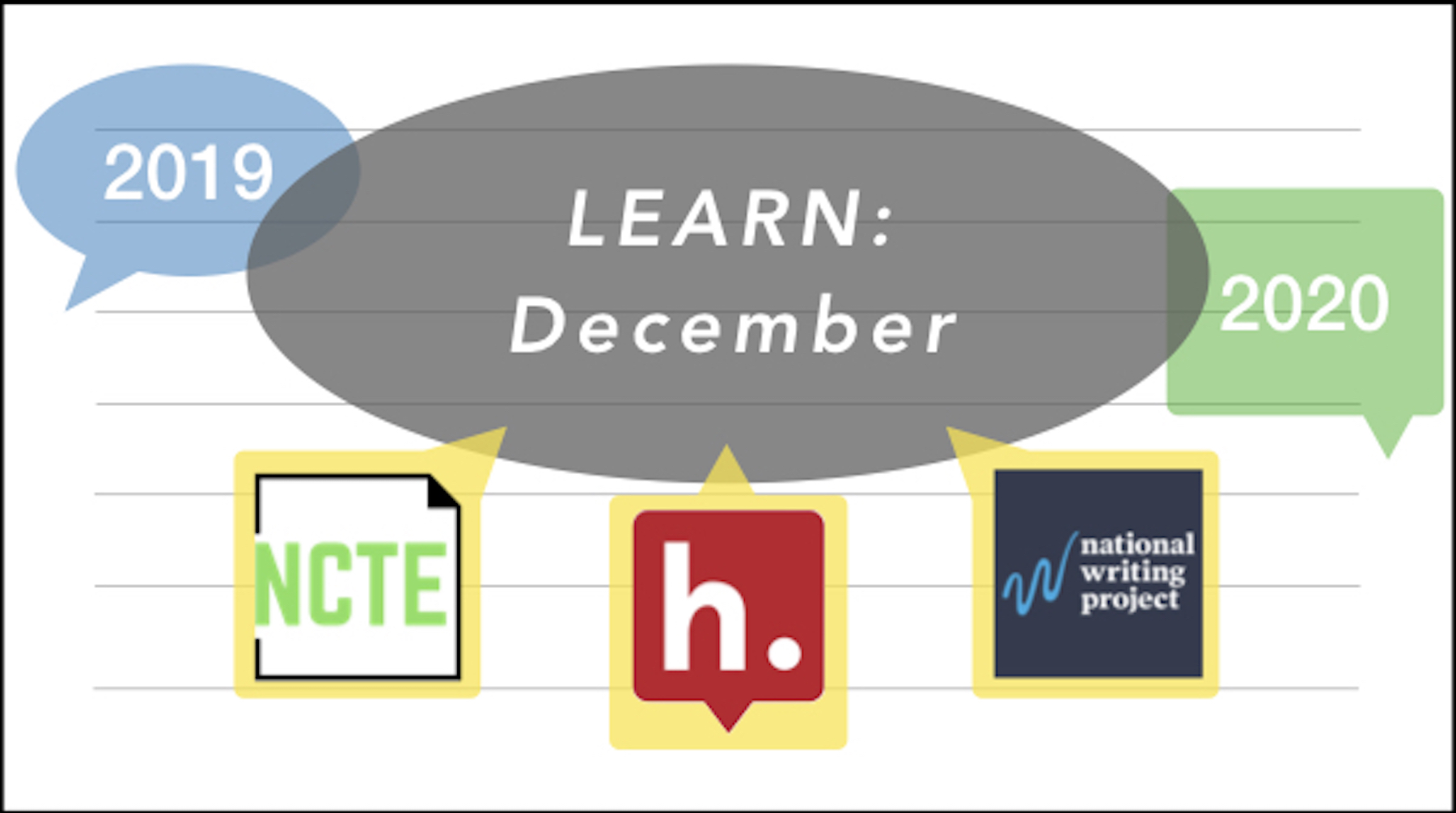 Welcome to the 2019-20 Marginal Syllabus and our December conversation! This is the second article we will read and publicly annotate as part of "Literacy, Equity + Remarkable Notes = LEARN." Our reading is part of the second LEARN syllabus co-developed in partnership with the National Writing Project (NWP), the National Council of Teachers of English (NCTE), and Hypothesis. The Marginal Syllabus sparks and sustains public conversation about educational equity through collaborative technologies and partnerships. What's "marginal" about the Marginal Syllabus? We partner with authors whose writing is contrary to dominant education norms, we read and annotate in the margins of online texts, and we discuss educational equity using open-source technology that’s marginal to commercial edtech.
Welcome to the 2019-20 Marginal Syllabus and our December conversation! This is the second article we will read and publicly annotate as part of "Literacy, Equity + Remarkable Notes = LEARN." Our reading is part of the second LEARN syllabus co-developed in partnership with the National Writing Project (NWP), the National Council of Teachers of English (NCTE), and Hypothesis. The Marginal Syllabus sparks and sustains public conversation about educational equity through collaborative technologies and partnerships. What's "marginal" about the Marginal Syllabus? We partner with authors whose writing is contrary to dominant education norms, we read and annotate in the margins of online texts, and we discuss educational equity using open-source technology that’s marginal to commercial edtech.
Tags
Annotators
URL
-
-
drive.google.com drive.google.com
-
Whiteness Is a White Problem: Whiteness in English Education
 Annotation is a form of conversation.
Annotation is a form of conversation.Using Hypothesis to read socially and publicly with other people is a unique learning opportunity.
We urge Marginal Syllabus participants to share annotations that spark conversation and deepen our collective inquiry.
Consider how your annotations might elicit dialogue rather than deliver a soliloquy.
Author annotations that open spaces for other people and multiple perspectives.
Please remember that discussing educational equity - and, specifically, topics that may be perceived as debatable or incompatible with personal experience - may be a challenging and new experience for some Marginal Syllabus participants. We welcome annotation that is:
- Civil. We can disagree. And when we do so, let’s also respect one another.
- Constructive. Share what you know. And build upon ideas that are relevant and informative.
- Curious. Ask honest questions and listen openly to responses.
- Creative. Model generative dialogue. Have fun. Contribute to and learn from the process.
-
Samuel Jaye Tanner
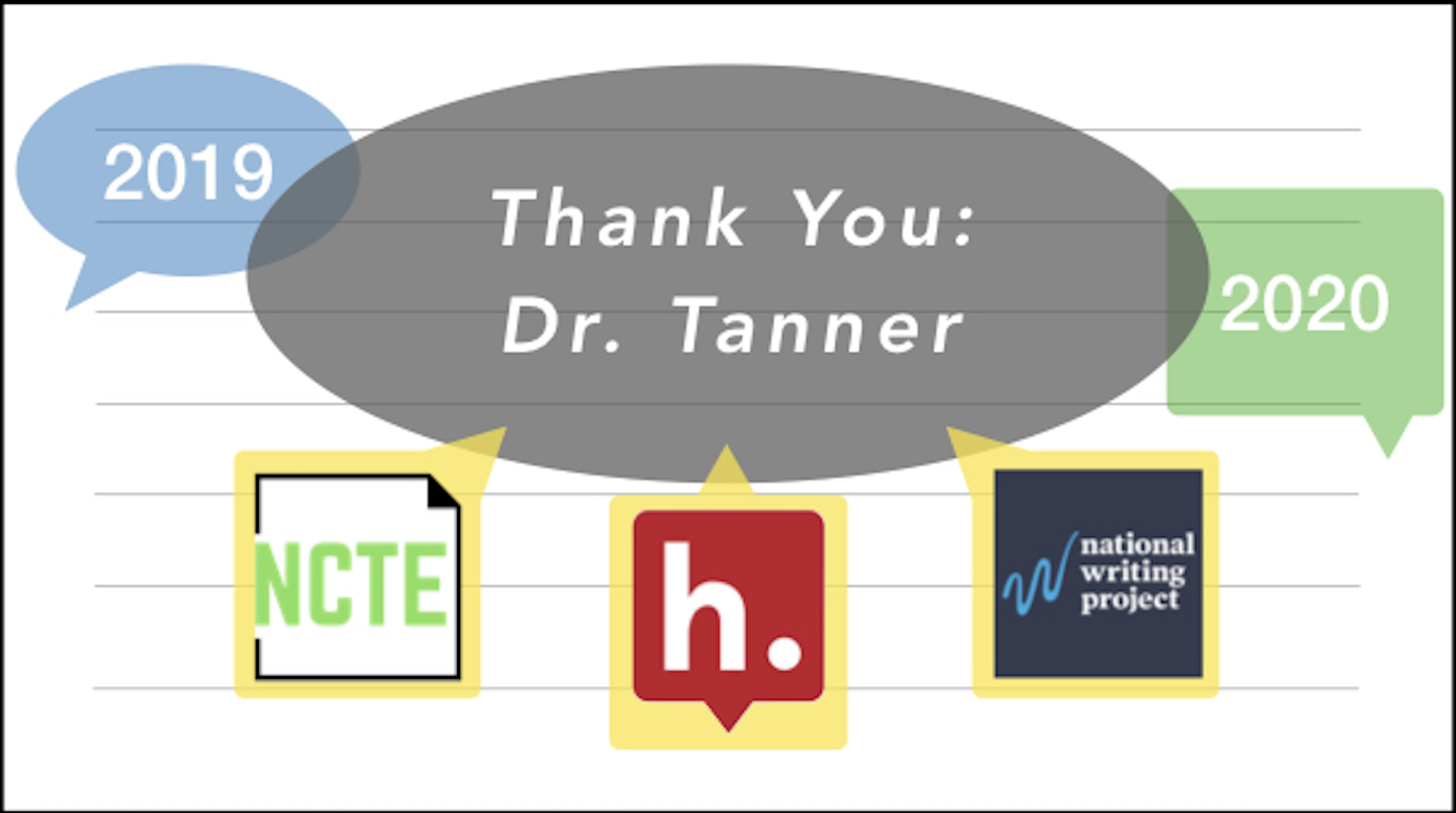 Our thanks to partner author Samuel Jaye Tanner for contributing to the 2019-20 Marginal Syllabus! A brief bio is included at the end of this article, and you can also learn more by visiting Sam's website.
Our thanks to partner author Samuel Jaye Tanner for contributing to the 2019-20 Marginal Syllabus! A brief bio is included at the end of this article, and you can also learn more by visiting Sam's website. -
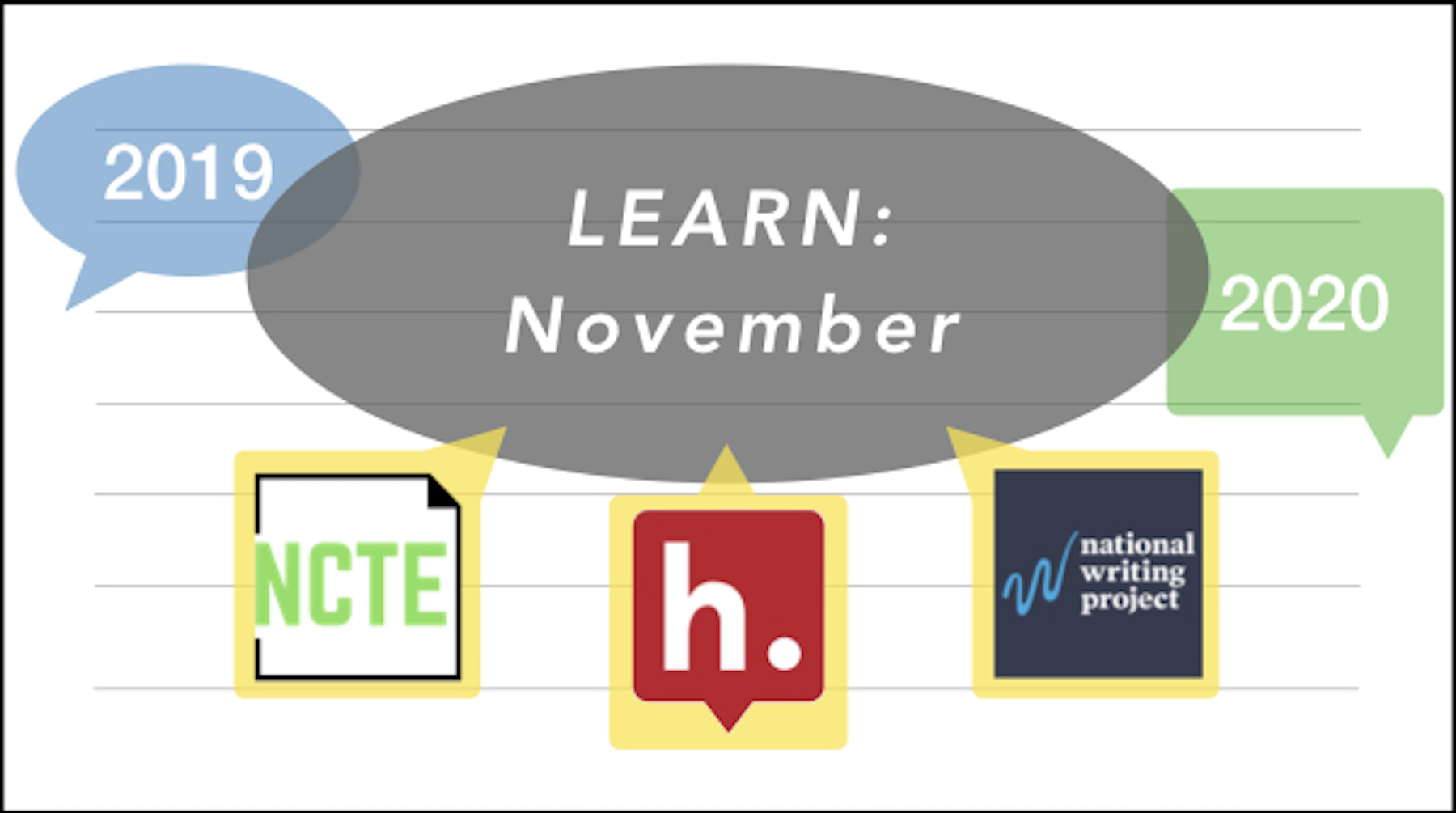 Welcome to the 2019-20 Marginal Syllabus and our November conversation! This is the first article we will read and publicly annotate as part of "Literacy, Equity + Remarkable Notes = LEARN." Our reading is part of the second LEARN syllabus co-developed in partnership with the National Writing Project (NWP), the National Council of Teachers of English (NCTE), and Hypothesis. The Marginal Syllabus sparks and sustains public conversation about educational equity through collaborative technologies and partnerships. What's "marginal" about the Marginal Syllabus? We partner with authors whose writing is contrary to dominant education norms, we read and annotate in the margins of online texts, and we discuss educational equity using open-source technology that’s marginal to commercial edtech.
Welcome to the 2019-20 Marginal Syllabus and our November conversation! This is the first article we will read and publicly annotate as part of "Literacy, Equity + Remarkable Notes = LEARN." Our reading is part of the second LEARN syllabus co-developed in partnership with the National Writing Project (NWP), the National Council of Teachers of English (NCTE), and Hypothesis. The Marginal Syllabus sparks and sustains public conversation about educational equity through collaborative technologies and partnerships. What's "marginal" about the Marginal Syllabus? We partner with authors whose writing is contrary to dominant education norms, we read and annotate in the margins of online texts, and we discuss educational equity using open-source technology that’s marginal to commercial edtech. -
 If you are joining a Marginal Syllabus conversation for the first time, or if you are using Hypothesis to annotate for the first time, here are a few useful notes and resources:
If you are joining a Marginal Syllabus conversation for the first time, or if you are using Hypothesis to annotate for the first time, here are a few useful notes and resources:- [Why annotate?] (https://s15138.pcdn.co/wp-content/uploads/2019/10/Why_-Infographic.pdf) Michelle King of the Western Pennsylvania Writing Project explores the “whys” of annotation with a focus on convening and curating dialogue, playing and noticing, and co-authoring professional learning.
- Here’s how to get started with Hypothesis and a great collection of education resources
- Are the margins getting crowded? Here’s how to join an annotation conversation with crowded margins
- Want to annotate privately within a group? You’re very welcome to use this article for private conversation, so here’s how to create a private Hypothesis group
-
Dr. April Baker-Bel
Dr. Baker-Bell was a Marginal Syllabus partner author during the 2017-18 "Writing Our Civic Futures" syllabus. Read "The Stories They Tell: Mainstream Media, Pedagogies of Healing and Critical Media Literacy" by April Baker-Bell, Raven Jones Stanbrough, and Sakeena Everett published in the January 2017 edition of English Education. Dr. Baker-Bell also recommended to the Marginal Syllabus team that we include this article in our current syllabus.
-
Dr. Lamar Johnso
Dr. Johnson is a partner author with this 2019-2020 LEARN Marginal Syllabus. We'll be reading and discussing Dr. Johnson's article “Where Do We Go From Here? Toward a Critical Race English Education” in June of 2020 as the concluding conversation of this syllabus.
-
I’m white
"When did you become white?" As a teacher educator, Sam asks some version of this question to his white pre-service English teachers during their coursework. The question serves as a prompt for a writing exercise and subsequent discussion. If you self-identity as white, you may want to consider, and perhaps also respond to, Sam's questions:
- When did you become white?
- And what and how have you learned from this?
Tags
Annotators
URL
-
-
-
and a note will appear
-
-
www.nytimes.com www.nytimes.com
-
or labeling photographs to train an artificial intelligence program
-
- Jul 2019
-
tomcritchlow.com tomcritchlow.com
-
As for experiments in cultivating community via Hypothesis and social annotation, check out real-time analytics associated with the collaborative activity atop this page - click here.
-
- May 2019
-
drive.google.com drive.google.com
-
102English Journal 107.6 (2018): 102–108Jemimah L. Young, Marquita D. Foster, and Dorothy Hines
 Our thanks to partner authors Jemimah Young, Marquita Foster, and Dorothy Hines for contributing to the 2018-19 LEARN Marginal Syllabus! Bios for each partner author are included at the end of this article.
Our thanks to partner authors Jemimah Young, Marquita Foster, and Dorothy Hines for contributing to the 2018-19 LEARN Marginal Syllabus! Bios for each partner author are included at the end of this article. -
 Welcome to the 2018-19 Marginal Syllabus and our Month conversation! This is the second article we will read and publicly annotate as part of "Literacy, Equity + Remarkable Notes = LEARN." LEARN has been co-developed in partnership with the National Writing Project (NWP), the National Council of Teachers of English (NCTE), and Hypothesis. The Marginal Syllabus convenes and sustains conversation via open web annotation with educators about issues of equity in teaching, learning, and education. What's "marginal" about the Marginal Syllabus? We partner with authors whose writing is contrary to dominant education norms, we read and annotate in the margins of online texts, and we discuss educational equity using open-source technology that’s marginal to commercial edtech. Read the full 2018-19 syllabus here.
Welcome to the 2018-19 Marginal Syllabus and our Month conversation! This is the second article we will read and publicly annotate as part of "Literacy, Equity + Remarkable Notes = LEARN." LEARN has been co-developed in partnership with the National Writing Project (NWP), the National Council of Teachers of English (NCTE), and Hypothesis. The Marginal Syllabus convenes and sustains conversation via open web annotation with educators about issues of equity in teaching, learning, and education. What's "marginal" about the Marginal Syllabus? We partner with authors whose writing is contrary to dominant education norms, we read and annotate in the margins of online texts, and we discuss educational equity using open-source technology that’s marginal to commercial edtech. Read the full 2018-19 syllabus here. -
 If you are joining a Marginal Syllabus conversation for the first time, or if you're using Hypothesis to annotate for the first time, here are a few useful notes and resources:
If you are joining a Marginal Syllabus conversation for the first time, or if you're using Hypothesis to annotate for the first time, here are a few useful notes and resources:- Reading with other people is a unique learning opportunity. Share annotations that spark conversation and deepen our collective inquiry. Consider how you might listen with your annotations. Create space for other people and multiple perspectives. Remember that discussing controversial topics is challenging and may be a new experience for some participants.
- Here’s how to get started with Hypothesis and a great collection of education resources
- Are the margins getting crowded? Here’s how to join an annotation conversation with crowded margins
- Want to annotate privately within a group? You’re very welcome to use this article for private conversation, so here’s how to create a private Hypothesis group
- Interested in social learning analytics? View visualizations of this conversation and gain deeper insight into collaborative reading and discussion. Follow this conversation via CROWDLAAERS
Tags
Annotators
URL
-
-
sciencefeedback.co sciencefeedback.coAbout1
-
We invite scientists with relevant expertise to comment on media articles that contain science-based information, adding contextual information and highlighting factual inaccuracies and faulty reasoning where they exist.
-
-
link-springer-com.ezp3.lib.umn.edu link-springer-com.ezp3.lib.umn.edu
-
an “unLMS” approach
-
-
educatorinnovator.org educatorinnovator.org
-
Contemporary Issues in Technology and Teacher Education
And thank you CITE! CITE is an open-access and peer-reviewed journal whose support for the 2019 Marginal Syllabus is most appreciated.
-
Baker-Doyle, K. J.
Thank you Kira Baker-Doyle! The Marginal Syllabus is most appreciative of partner authors who agree to have their scholarship publicly annotated to support openly-networked and interest-driven professional learning. Read more about Marginal Syllabus author partnerships.
-
If you are joining a Marginal Syllabus conversation for the first time, or if you're using Hypothesis to annotate for the first time, here are a few useful notes and resources:
- Reading with other people is a unique learning opportunity. Share annotations that spark conversation and deepen our collective inquiry. Consider how you might listen with your annotations. Create space for other people and multiple perspectives. Remember that discussing controversial topics is challenging and may be a new experience for some participants.
- Here’s how to get started with Hypothesis and a great collection of education resources
- Are the margins getting crowded? Here’s how to join an annotation conversation with crowded margins
- Want to annotate privately within a group? You’re very welcome to use this article for private conversation, so here’s how to create a private Hypothesis group
- Interested in social learning analytics? View visualizations of this conversation and gain deeper insight into collaborative reading and discussion. Follow this conversation via CROWDLAAERS
-
Welcome to the summer 2019 Marginal Syllabus and our fourth conversation! This is the fourth article we will read and publicly annotate as part of "Connected Learning in Teacher Education." This Marginal Syllabus has been co-developed in partnership with the Connected Learning in Teacher Education (CLinTE) network, the journal Contemporary Issues in Technology and Teacher Education (CITE), and Hypothesis. The Marginal Syllabus convenes and sustains conversation via open and collaborative web annotation with educators about issues of equity in teaching, learning, and education.
What's "marginal" about the Marginal Syllabus? We partner with authors whose writing is contrary to dominant education norms, we read and annotate in the margins of online texts, and we discuss educational equity using open-source technology that’s marginal to commercial educational technology. Thanks for joining us this summer!
-
-
educatorinnovator.org educatorinnovator.org
-
Contemporary Issues in Technology & Teacher Education
And thank you CITE! CITE is an open-access and peer-reviewed journal whose support for the 2019 Marginal Syllabus is most appreciated.
-
West-Puckett, S., Smith, A., Cantrill, C., &Zamora, M.
Thank you partner authors! The Marginal Syllabus is most appreciative of partner authors who agree to have their scholarship publicly annotated to support openly-networked and interest-driven professional learning. Read more about Marginal Syllabus author partnerships.
-
If you are joining a Marginal Syllabus conversation for the first time, or if you're using Hypothesis to annotate for the first time, here are a few useful notes and resources:
- Reading with other people is a unique learning opportunity. Share annotations that spark conversation and deepen our collective inquiry. Consider how you might listen with your annotations. Create space for other people and multiple perspectives. Remember that discussing controversial topics is challenging and may be a new experience for some participants.
- Here’s how to get started with Hypothesis and a great collection of education resources
- Are the margins getting crowded? Here’s how to join an annotation conversation with crowded margins
- Want to annotate privately within a group? You’re very welcome to use this article for private conversation, so here’s how to create a private Hypothesis group
- Interested in social learning analytics? View visualizations of this conversation and gain deeper insight into collaborative reading and discussion. Follow this conversation via CROWDLAAERS
-
Welcome to the summer 2019 Marginal Syllabus and our third conversation! This is the third article we will read and publicly annotate as part of "Connected Learning in Teacher Education." This Marginal Syllabus has been co-developed in partnership with the Connected Learning in Teacher Education (CLinTE) network, the journal Contemporary Issues in Technology and Teacher Education (CITE), and Hypothesis. The Marginal Syllabus convenes and sustains conversation via open and collaborative web annotation with educators about issues of equity in teaching, learning, and education.
What's "marginal" about the Marginal Syllabus? We partner with authors whose writing is contrary to dominant education norms, we read and annotate in the margins of online texts, and we discuss educational equity using open-source technology that’s marginal to commercial educational technology. Thanks for joining us this summer!
-
-
educatorinnovator.org educatorinnovator.org
-
Contemporary Issues in Technology and Teacher Education
And thank you CITE! CITE is an open-access and peer-reviewed journal whose support for the 2019 Marginal Syllabus is most appreciated.
-
Hsieh, B.
Thank you Betina Hsieh! The Marginal Syllabus is most appreciative of partner authors who agree to have their scholarship publicly annotated to support openly-networked and interest-driven professional learning. Read more about Marginal Syllabus author partnerships.
-
If you are joining a Marginal Syllabus conversation for the first time, or if you're using Hypothesis to annotate for the first time, here are a few useful notes and resources:
- Reading with other people is a unique learning opportunity. Share annotations that spark conversation and deepen our collective inquiry. Consider how you might listen with your annotations. Create space for other people and multiple perspectives. Remember that discussing controversial topics is challenging and may be a new experience for some participants.
- Here’s how to get started with Hypothesis and a great collection of education resources
- Are the margins getting crowded? Here’s how to join an annotation conversation with crowded margins
- Want to annotate privately within a group? You’re very welcome to use this article for private conversation, so here’s how to create a private Hypothesis group
- Interested in social learning analytics? View visualizations of this conversation and gain deeper insight into collaborative reading and discussion. Follow this conversation via CROWDLAAERS
-
Welcome to the summer 2019 Marginal Syllabus and our second conversation! This is the second article we will read and publicly annotate as part of "Connected Learning in Teacher Education." This Marginal Syllabus has been co-developed in partnership with the Connected Learning in Teacher Education (CLinTE) network, the journal Contemporary Issues in Technology and Teacher Education (CITE), and Hypothesis. The Marginal Syllabus convenes and sustains conversation via open and collaborative web annotation with educators about issues of equity in teaching, learning, and education.
What's "marginal" about the Marginal Syllabus? We partner with authors whose writing is contrary to dominant education norms, we read and annotate in the margins of online texts, and we discuss educational equity using open-source technology that’s marginal to commercial educational technology. Thanks for joining us this summer!
-
-
educatorinnovator.org educatorinnovator.org
-
Contemporary Issues in Technology and Teacher Education
And thank you CITE! CITE is an open-access and peer-reviewed journal whose support for the 2019 Marginal Syllabus is most appreciated.
-
Watulak, S. L., Woodard, R., Smith, A., Johnson, L., Phillips, N., & Wargo, K.
Thank you partner authors! The Marginal Syllabus is most appreciative of partner authors who agree to have their scholarship publicly annotated to support openly-networked and interest-driven professional learning. Read more about Marginal Syllabus author partnerships.
-
If you are joining a Marginal Syllabus conversation for the first time, or if you're using Hypothesis to annotate for the first time, here are a few useful notes and resources:
- Reading with other people is a unique learning opportunity. Share annotations that spark conversation and deepen our collective inquiry. Consider how you might listen with your annotations. Create space for other people and multiple perspectives. Remember that discussing controversial topics is challenging and may be a new experience for some participants.
- Here’s how to get started with Hypothesis and a great collection of education resources
- Are the margins getting crowded? Here’s how to join an annotation conversation with crowded margins
- Want to annotate privately within a group? You’re very welcome to use this article for private conversation, so here’s how to create a private Hypothesis group
- Interested in social learning analytics? View visualizations of this conversation and gain deeper insight into collaborative reading and discussion. Follow this conversation via CROWDLAAERS
-
Welcome to the summer 2019 Marginal Syllabus and our first conversation! This is the first article we will read and publicly annotate as part of "Connected Learning in Teacher Education." This Marginal Syllabus has been co-developed in partnership with the Connected Learning in Teacher Education (CLinTE) network, the journal Contemporary Issues in Technology and Teacher Education (CITE), and Hypothesis. The Marginal Syllabus convenes and sustains conversation via open and collaborative web annotation with educators about issues of equity in teaching, learning, and education.
What's "marginal" about the Marginal Syllabus? We partner with authors whose writing is contrary to dominant education norms, we read and annotate in the margins of online texts, and we discuss educational equity using open-source technology that’s marginal to commercial educational technology. Thanks for joining us this summer!
-
-
ccc.coastal.edu ccc.coastal.edu
-
create identifiable usernames. FirstLastName is a good example
I wouldn't call this a "best practice," especially if students are going to transition from course-based use of Hypothesis to social annotation on the open web. Not everyone wants to be identified online and anonymity is important, especially for students from nondominant groups. I give my students a choice about their H usernames:
- entirely anonymous, like banana1234
- somewhat pseudonymous like john1234
- attributed like remikalir (my username) It's easy enough to create a private list only accessible within a course that matches usernames to real identities (share it as a googledoc or post it to the LMS). Ultimately, I want students to use H for learning in a course context and then transition to annotating the open web once they are no longer enrolled in my course or at my university. In order to more respectfully and safely guide this transition, I think a "better" practice is to give students options about anonymity and attribution.
-
-
inst-fs-iad-prod.inscloudgate.net inst-fs-iad-prod.inscloudgate.net
-
Everardo Pedraza and R. Joseph Rodríguez
 Our thanks to partner authors Everardo Pedraza and Joseph Rodriguez for contributing to the 2018-19 Marginal Syllabus! A short bio of each author is included at the end of this article. And a Connected Learning TV webinar with both partner authors, and regular Marginal Syllabus participants, will go live on Tuesday, May 7th (and will be included in this annotation, too).
Our thanks to partner authors Everardo Pedraza and Joseph Rodriguez for contributing to the 2018-19 Marginal Syllabus! A short bio of each author is included at the end of this article. And a Connected Learning TV webinar with both partner authors, and regular Marginal Syllabus participants, will go live on Tuesday, May 7th (and will be included in this annotation, too). -
 If you are joining a Marginal Syllabus conversation for the first time, or if you're using Hypothesis to annotate for the first time, here are a few useful notes and resources:
If you are joining a Marginal Syllabus conversation for the first time, or if you're using Hypothesis to annotate for the first time, here are a few useful notes and resources:- Reading with other people is a unique learning opportunity. Share annotations that spark conversation and deepen our collective inquiry. Consider how you might listen with your annotations. Create space for other people and multiple perspectives. Remember that discussing controversial topics is challenging and may be a new experience for some participants.
- Here’s how to get started with Hypothesis and a great collection of education resources
- Are the margins getting crowded? Here’s how to join an annotation conversation with crowded margins
- Want to annotate privately within a group? You’re very welcome to use this article for private conversation, so here’s how to create a private Hypothesis group
- Interested in learning analytics? Follow this conversation via CROWDLAAERS
-
 Welcome to the 2018-19 Marginal Syllabus and our Month conversation! This is the second article we will read and publicly annotate as part of "Literacy, Equity + Remarkable Notes = LEARN." LEARN has been co-developed in partnership with the National Writing Project (NWP), the National Council of Teachers of English (NCTE), and Hypothesis. The Marginal Syllabus convenes and sustains conversation via open web annotation with educators about issues of equity in teaching, learning, and education. What's "marginal" about the Marginal Syllabus? We partner with authors whose writing is contrary to dominant education norms, we read and annotate in the margins of online texts, and we discuss educational equity using open-source technology that’s marginal to commercial edtech. Read the full 2018-19 syllabus here.
Welcome to the 2018-19 Marginal Syllabus and our Month conversation! This is the second article we will read and publicly annotate as part of "Literacy, Equity + Remarkable Notes = LEARN." LEARN has been co-developed in partnership with the National Writing Project (NWP), the National Council of Teachers of English (NCTE), and Hypothesis. The Marginal Syllabus convenes and sustains conversation via open web annotation with educators about issues of equity in teaching, learning, and education. What's "marginal" about the Marginal Syllabus? We partner with authors whose writing is contrary to dominant education norms, we read and annotate in the margins of online texts, and we discuss educational equity using open-source technology that’s marginal to commercial edtech. Read the full 2018-19 syllabus here.
-
- Apr 2019
-
www.justice.gov www.justice.gov
-
For people interested in tracking analytics associated with the collaborative reading of this report, click here to activate the "crowd layers" dashboard. The dashboard will provide real-time analytics on total annotators, annotations, types of annotations, tags, and more.
-
-
onlinelearningconsortium.org onlinelearningconsortium.org
-
Online Learning Consortium (OLC)
Hello OLC!
-
- Mar 2019
-
educatorinnovator.org educatorinnovator.org
-
Cultivating
This open access version of "Cultivating urban literacies on Chicago's South Side through a pedagogy of spatial justice" is being publicly read, annotated, and discussed as a part of the 2018-19 Marginal Syllabus. To learn more about this project and discussion, click Page Notes (above) to access additional information and linked resources.
-
AndreAVaughan■rebeccA woodard■nAthAn c. phillips■kArAtaylor
 Our thanks to partner authors Andrea Vaughan, Rebecca Woodard, Nathan Phillips, and Kara Taylor for contributing to the 2018-19 Marginal Syllabus! Additional biographical information about the authors is included at the end of this article. And a Connected Learning TV webinar featuring all the authors will be broadcast on Tuesday, April 2nd and also embedded in our annotation conversation, too.
Our thanks to partner authors Andrea Vaughan, Rebecca Woodard, Nathan Phillips, and Kara Taylor for contributing to the 2018-19 Marginal Syllabus! Additional biographical information about the authors is included at the end of this article. And a Connected Learning TV webinar featuring all the authors will be broadcast on Tuesday, April 2nd and also embedded in our annotation conversation, too. -
 If you are joining a Marginal Syllabus conversation for the first time, or if you're using Hypothesis to annotate for the first time, here are a few useful notes and resources:
If you are joining a Marginal Syllabus conversation for the first time, or if you're using Hypothesis to annotate for the first time, here are a few useful notes and resources:- Reading with other people is a unique learning opportunity. Share annotations that spark conversation and deepen our collective inquiry. Consider how you might listen with your annotations. Create space for other people and multiple perspectives. Remember that discussing controversial topics is challenging and may be a new experience for some participants.
- Here’s how to get started with Hypothesis and a great collection of education resources
- Are the margins getting crowded? Here’s how to join an annotation conversation with crowded margins
- Want to annotate privately within a group? You’re very welcome to use this article for private conversation, so here’s how to create a private Hypothesis group
- Interested in learning analytics? Follow this conversation via CROWDLAAERS
-
 Welcome to the 2018-19 Marginal Syllabus and our April conversation! This is the sixth article we will read and publicly annotate as part of "Literacy, Equity + Remarkable Notes = LEARN." LEARN has been co-developed in partnership with the National Writing Project (NWP), the National Council of Teachers of English (NCTE), and Hypothesis. The Marginal Syllabus convenes and sustains conversation via open web annotation with educators about issues of equity in teaching, learning, and education. What's "marginal" about the Marginal Syllabus? We partner with authors whose writing is contrary to dominant education norms, we read and annotate in the margins of online texts, and we discuss educational equity using open-source technology that’s marginal to commercial edtech. Read the full 2018-19 syllabus here.
Welcome to the 2018-19 Marginal Syllabus and our April conversation! This is the sixth article we will read and publicly annotate as part of "Literacy, Equity + Remarkable Notes = LEARN." LEARN has been co-developed in partnership with the National Writing Project (NWP), the National Council of Teachers of English (NCTE), and Hypothesis. The Marginal Syllabus convenes and sustains conversation via open web annotation with educators about issues of equity in teaching, learning, and education. What's "marginal" about the Marginal Syllabus? We partner with authors whose writing is contrary to dominant education norms, we read and annotate in the margins of online texts, and we discuss educational equity using open-source technology that’s marginal to commercial edtech. Read the full 2018-19 syllabus here.
-
-
resources.chicagolx.org resources.chicagolx.org
-
UC
Copyedit: Change to "CU" from "UC" (as the Colorado system distinguishes itself from California).
-
in-schooland out-of-school practitioners
Make these roles more explicit?
-
Greetings everyone, I'm excited about CLX developing this connected learning guide! If you are participating in the feedback activities via Hypothesis annotation, and if you'd like to see analytics about the collaborative activity associated with this guide, please click here. This link will take you to the "crowd layers" dashboard, where you can view a summary of who is annotating, what types of annotations have been added, when annotations were written, if annotations are tagged, and more. I hope this is a useful tool that complements the broader feedback process.
-
-
journals.sagepub.com journals.sagepub.com
-
24, or 38%, of which were concentrated on one projectspecifically experimenting with Hypothes.is web annotation
120 annotations by 12 participants who conversed via 32 discursive threads over 20 days. Easily access analytics associated with the collaborative annotation activity of this experimental conversation using the "crowd layers" dashboard.
-
open reviews and discourse
And I hope Dr. Skains is welcoming of this post-publication review and discourse, given both the content and spirit of the article.
-
into a digital discourse occurringona source text itself.

-
a largely unsuccessful venture to this date
One of the core points - and tensions - of this article. I'd like to see some broader debate about what counts as "success."
-
Hypothes.is currently has an edge over similar annotation tools in terms of ubiquity, as it hasformed a coalition with over 60 academic institutions and presses to make use of its services(Dwhly, 2015)
Not to mention Hypothesis' efforts to establish an open annotation standard.
-
Other open peer review systems
Some commentary from Hypothesis' Heather Staines in this section would be most welcome...
-
The digital marginalia broke down as noted in Table 1, with most of thecomments (19 of 37) focused on specific revisions to particular segments, ranging from clar-ification of points to inclusion of additional resources
I'm curious about the methodology used to categorize this annotation corpus, especially in light of the fact that Kalir & Dean (2018) would ultimately feature 120 annotations through January 7, 2018.
-
Collaborative annotation and conversation atop this article can be followed using the "crowd layers" dashboard - click here!
-
Kalir R and Dean J (2016)
Kalir, J., & Dean, J. (2018). Web annotation as conversation and interruption. Journal of Media Practice, 19(1), 18-29.
-
2016
Our open access article was published in 2018 as: Kalir, J., & Dean, J. (2018). Web annotation as conversation and interruption. Journal of Media Practice, 19(1), 18-29.
-
-
www.insidehighered.com www.insidehighered.com
-
Welcome OpenLearning19 participants! Curious about who has joined this annotation conversation, and how they've annotated this article? You're very welcome to click here and use the "crowd layers" dashboard to access open analytics about who has annotated this article, what types of annotation have been authored, how the conversation grows over time, and more. Hope this is a useful complement to the conversation!
-
-
-
Are you curious about the collaborative annotation conversation atop this article? Click here and use the "crowd layers" dashboard to explore who has annotated this article, what types of annotation have been authored, how the conversation grows over time, and more. Hope this is a useful complement to the conversation.
-
-
journals.plos.org journals.plos.org
-
Curious about the collaborative annotation conversation atop this research article? Click here and use the "crowd layers" dashboard to explore who has annotated this article, what types of annotation have been authored, how the conversation grows over time, and more. Hope this is a useful complement to the conversation.
Tags
Annotators
URL
-
-
images.socialwelfare.library.vcu.edu images.socialwelfare.library.vcu.edu
-
Wow, very cool project. Hope you don't mind me jumping in here with a tool that this group might find useful. The "crowd layers" dashboard will provide real-time analytics related to the collaborative activity associated with this document. Click here to see who's annotating, how they're annotating, when, with what tags, and more. I hope this is useful!
-
-
4re.referrals.selectminds.com 4re.referrals.selectminds.com
-
Click here to view a summary of collaborative Hypothesis annotation associated with this ad.
-
-
educatorinnovator.org educatorinnovator.org
-
Language Arts Lessons
This open access version of "Critical Indigenous Literacies: Selecting and Using Children's Books about Indigenous Peoples" is being publicly read, annotated, and discussed as a part of the 2018-19 Marginal Syllabus. To learn more about this project and discussion, click Page Notes (above) to access additional information and linked resources.
-
#OwnVoices
Click here to read the latest tweets tagged #OwnVoices.
-
American Indians in Children’s Liter-ature (https://americanindiansinchildrensliterature.blogspot.com)
"Established in 2006, American Indians in Children's Literature (AICL) provides critical perspectives and analysis of indigenous peoples in children's and young adult books, the school curriculum, popular culture, and society." Visit the site to read book reviews, Native media, and more.
-
Debbie Reese
 Our thanks to partner author Debbie Reese for contributing to the 2018-19 Marginal Syllabus! A short biography of Debbie Reese is included at the end of this article, and you can also learn more about her here.
Our thanks to partner author Debbie Reese for contributing to the 2018-19 Marginal Syllabus! A short biography of Debbie Reese is included at the end of this article, and you can also learn more about her here. -
 If you are joining a Marginal Syllabus conversation for the first time, or if you're using Hypothesis to annotate for the first time, here are a few useful notes and resources:
If you are joining a Marginal Syllabus conversation for the first time, or if you're using Hypothesis to annotate for the first time, here are a few useful notes and resources:- Reading with other people is a unique learning opportunity. Share annotations that spark conversation and deepen our collective inquiry. Consider how you might listen with your annotations. Create space for other people and multiple perspectives. Remember that discussing controversial topics is challenging and may be a new experience for some participants.
- Here’s how to get started with Hypothesis and a great collection of education resources
- Are the margins getting crowded? Here’s how to join an annotation conversation with crowded margins
- Want to annotate privately within a group? You’re very welcome to use this article for private conversation, so here’s how to create a private Hypothesis group
- Interested in learning analytics? Follow this conversation via CROWDLAAERS
-
 Welcome to the 2018-19 Marginal Syllabus and our March conversation! This is the fifth article we will read and publicly annotate as part of "Literacy, Equity + Remarkable Notes = LEARN." LEARN has been co-developed in partnership with the National Writing Project (NWP), the National Council of Teachers of English (NCTE), and Hypothesis. The Marginal Syllabus convenes and sustains conversation via open web annotation with educators about issues of equity in teaching, learning, and education. What's "marginal" about the Marginal Syllabus? We partner with authors whose writing is contrary to dominant education norms, we read and annotate in the margins of online texts, and we discuss educational equity using open-source technology that’s marginal to commercial edtech. Read the full 2018-19 syllabus here.
Welcome to the 2018-19 Marginal Syllabus and our March conversation! This is the fifth article we will read and publicly annotate as part of "Literacy, Equity + Remarkable Notes = LEARN." LEARN has been co-developed in partnership with the National Writing Project (NWP), the National Council of Teachers of English (NCTE), and Hypothesis. The Marginal Syllabus convenes and sustains conversation via open web annotation with educators about issues of equity in teaching, learning, and education. What's "marginal" about the Marginal Syllabus? We partner with authors whose writing is contrary to dominant education norms, we read and annotate in the margins of online texts, and we discuss educational equity using open-source technology that’s marginal to commercial edtech. Read the full 2018-19 syllabus here.
-
- Feb 2019
-
dougengelbart.org dougengelbart.org
-
These are only a few of the total, I'm sure
As an educator, it's encouraging - in an odd sort of way - that formal schooling, the work of teaching, and (especially) K12 learning was not mentioned in this list given dominant narratives about technology replacing/improving the practices of teaching and learning.
-
such that computer processes based upon these rules can be said to extract meaning from these statements and to do operations based upon this meaning.
Given both recent research and highly publicized corporate missteps, is it not prudent to ask: What role does human bias play in designing the computer processes that extract meaning and perform operations?
-
if you were being given a personal discussion-demonstration by a friendly fellow (named Joe)
I thought it might be useful, at the outset of this section, to inquire about Engelbart's choices as an author. I'm struck by his decision to craft this expository and hypothetical description, to provide us readers with another set of entry points and scaffolds to better understand his prior arguments. Though the style and tenor is quite different, I'm reminded of Bernard Suits' book The Grasshopper that relied upon dialogue and extended analogy to rebut Wittgenstein's claims of "family resemblances." In any case, perhaps I'm most curious about unpacking authorial motivation and decision-making, for this section differs in so many ways from more conventional technical reports, literature reviews, or surveys of theory. This section may not have been necessary, but - presumably - it was included because it accomplished something the previous sections were unable to capture? Or is this "merely" for the purposes of exposition?
-
maintain stoutly that a practical augmentation system should not require the human to have to do any computer programming—they feel that this is too specialized a capability to burden people with
Jon Udell's conversation with Gardner Campbell touches upon this point, around minute 11. https://youtu.be/-lClojNraK4
-
we very rarely go back to it in its original form
I'm reminded of the Annotation for Transparent Inquiry project that is part of the Qualitative Data Repository.
-
something like footnotes, only much more flexible
Something, perhaps, like open annotation?
-
Let us use what we call 'antecedent links'
-
'What's this?', 'How come?', and 'So what?'
Oh, it's a dissertation defense.
-
Golly, you could be writing math expressions, ad copy, or a poem, with the same type of benefit.
Coming to this observation, as I read more deeply into this narrative, I'm curious about the generative tension between text (n) and text (v). How have others perceived, and perhaps also contributed to, the augmentation of text (n/v) - in terms of composition, editing, visualization...
Tags
Annotators
URL
-
-
library.educause.edu library.educause.edu
-
Track collaborative activity associated with this conversation and document using the "crowd layers" dashboard.
-
-
library.educause.edu library.educause.edu
-
For #ELI2019 participants (and others) who join this annotation conversation, use this link to track analytics associated with your collaborative activity using the "crowd layers" dashboard.
-
-
pedagogyplayground.com pedagogyplayground.com
-
Other Applications
Check out CROWDLAAERS (https://crowdlaaers.org/) especially this post that describes how to access private group analytics.
-
-
www.nytimes.com www.nytimes.com
-
Londonderry
Derry. This is a corner in Derry. Especially when showcasing this particular Bogside mural, this is Derry.
-
-
docdrop.org docdrop.org
-
Contents
test
-
-
instructure-uploads.s3.amazonaws.com instructure-uploads.s3.amazonaws.com
-
educatorinnovator.org educatorinnovator.org
-
Tanja BurkhardUniversity of PittsburghCarlotta PennThe Ohio State University
Here's our Connected Learning TV webinar with partner authors Valerie Kinloch, Tanja Burkhard, and Carlotta Penn, also featuring regular Marginal Syllabus participants Michelle King and Cherise McBride - enjoy! https://youtu.be/XzK4jD3QaaY
-
Valerie KinlochUniversity of Pittsburgh
 Our thanks to partner authors Valerie Kinloch, Tanja Burkhard, and Carlotta Penn for contributing to the 2018-19 Marginal Syllabus! A Connected Learning TV webinar featuring all three partner authors will be broadcast on Tuesday, Feb 5th, with the video also embedded here in our annotation conversation. Brief bios for all three partner authors are also included at the end of this article.
Our thanks to partner authors Valerie Kinloch, Tanja Burkhard, and Carlotta Penn for contributing to the 2018-19 Marginal Syllabus! A Connected Learning TV webinar featuring all three partner authors will be broadcast on Tuesday, Feb 5th, with the video also embedded here in our annotation conversation. Brief bios for all three partner authors are also included at the end of this article. -
 If you are joining a Marginal Syllabus conversation for the first time, or if you're using Hypothesis to annotate for the first time, here are a few useful notes and resources:
If you are joining a Marginal Syllabus conversation for the first time, or if you're using Hypothesis to annotate for the first time, here are a few useful notes and resources:- Reading with other people is a unique learning opportunity. Share annotations that spark conversation and deepen our collective inquiry. Consider how you might listen with your annotations. Create space for other people and multiple perspectives. Remember that discussing controversial topics is challenging and may be a new experience for some participants.
- Here’s how to get started with Hypothesis and a great collection of education resources
- Are the margins getting crowded? Here’s how to join an annotation conversation with crowded margins
- Want to annotate privately within a group? You’re very welcome to use this article for private conversation, so here’s how to create a private Hypothesis group
- Interested in learning analytics? Follow this conversation via CROWDLAAERS
-
 Welcome to the 2018-19 Marginal Syllabus and our February conversation! This is the fourth article we will read and publicly annotate as part of "Literacy, Equity + Remarkable Notes = LEARN." LEARN has been co-developed in partnership with the National Writing Project (NWP), the National Council of Teachers of English (NCTE), and Hypothesis. The Marginal Syllabus convenes and sustains conversation via open web annotation with educators about issues of equity in teaching, learning, and education. What's "marginal" about the Marginal Syllabus? We partner with authors whose writing is contrary to dominant education norms, we read and annotate in the margins of online texts, and we discuss educational equity using open-source technology that’s marginal to commercial edtech. Read the full 2018-19 syllabus here.
Welcome to the 2018-19 Marginal Syllabus and our February conversation! This is the fourth article we will read and publicly annotate as part of "Literacy, Equity + Remarkable Notes = LEARN." LEARN has been co-developed in partnership with the National Writing Project (NWP), the National Council of Teachers of English (NCTE), and Hypothesis. The Marginal Syllabus convenes and sustains conversation via open web annotation with educators about issues of equity in teaching, learning, and education. What's "marginal" about the Marginal Syllabus? We partner with authors whose writing is contrary to dominant education norms, we read and annotate in the margins of online texts, and we discuss educational equity using open-source technology that’s marginal to commercial edtech. Read the full 2018-19 syllabus here.
-
-
-
Greetings NCTE working group! Curious about how your "crowd" of annotators adds a "layer" of conversation atop this document? The "crowd layers" public dashboard summarizes and visualizes annotations (by type), and provides additional information about text-participants, active days, tags, and more! To see collaborative activity associated with this document, click here.
Tags
Annotators
URL
-
- Jan 2019
-
educationaltechnologyjournal.springeropen.com educationaltechnologyjournal.springeropen.com
-
Kalir (in press)
It's an honor to be cited by Maha and Autumm in their paper! This particular article was published at the end of 2018 as "Equity-oriented design in open education." Here's the journal's version as well as an open access preprint.
-
Curious about who's been annotating this article, how, and when? Use the CROWDLAAERS ("crowd layers") dashboard to get real-time analytics associated with text-participants, total annotations and replies, collaborative threads, active days, and tags. This link will always show updated learning analytics associated with this conversation - enjoy!
-
-
pressbooks.pub pressbooks.pub
-
Follow this CROWDLAAERS ("crowd layers") link to access analytics about the collaborative annotation conversation associated with the chapter "Not Enough Voices."
-
-
dougengelbart.org dougengelbart.org
-
Are you curious about the collaborative annotation activity occurring atop Engelbart's conceptual framework? Use the CROWDLAAERS ("crowd layers") dashboard to view real-time analytics associated with text-participants, total annotations and replies, collaborative threads, active days, and tags. This link will always show updated learning analytics associated with this conversation as it grows over time - enjoy!
Tags
Annotators
URL
-
-
criticaldigitalpedagogy.pressbooks.com criticaldigitalpedagogy.pressbooks.com
-
Follow this CROWDLAAERS ("crowd layers") link to access analytics about the collaborative annotation conversation associated with the chapter "Beyond the LMS."
-
-
citeseerx.ist.psu.edu citeseerx.ist.psu.edu
-
Teaching
test
-
-
www.theatlantic.com www.theatlantic.com
-
News
this is an annotation
-
-
educatorinnovator.org educatorinnovator.org
-
Allison Skerrett, Amber Warrington, and Thea Williamson
 Our thanks to partner authors Allison Skerrett, Amber Warrington, and Thea Williamson for contributing to the 2018-19 Marginal Syllabus! A short bio for each scholar is included at the end of this article. Also, all partner authors joined Marginal Syllabus readers and facilitators in a Connected Learning TV webinar about this article that will be available to view via Educator Innovator on Tuesday, January 8th - please watch as a complement to reading and annotating this important article!
Our thanks to partner authors Allison Skerrett, Amber Warrington, and Thea Williamson for contributing to the 2018-19 Marginal Syllabus! A short bio for each scholar is included at the end of this article. Also, all partner authors joined Marginal Syllabus readers and facilitators in a Connected Learning TV webinar about this article that will be available to view via Educator Innovator on Tuesday, January 8th - please watch as a complement to reading and annotating this important article! -
 If you are joining a Marginal Syllabus conversation for the first time, or if you're using Hypothesis to annotate for the first time, here are a few useful notes and resources:
If you are joining a Marginal Syllabus conversation for the first time, or if you're using Hypothesis to annotate for the first time, here are a few useful notes and resources:- Reading with other people is a unique learning opportunity. Share annotations that spark conversation and deepen our collective inquiry. Consider how you might listen with your annotations. Create space for other people and multiple perspectives. Remember that discussing controversial topics is challenging and may be a new experience for some participants.
- Here’s how to get started with Hypothesis and a great collection of education resources
- Are the margins getting crowded? Here’s how to join an annotation conversation with crowded margins
- Want to annotate privately within a group? You’re very welcome to use this article for private conversation, so here’s how to create a private Hypothesis group
- Interested in learning analytics? Follow this conversation via CROWDLAAERS
-
 Welcome to the 2018-19 Marginal Syllabus and our January conversation! This is the third article we will read and publicly annotate as part of "Literacy, Equity + Remarkable Notes = LEARN." LEARN has been co-developed in partnership with the National Writing Project (NWP), the National Council of Teachers of English (NCTE), and Hypothesis. The Marginal Syllabus convenes and sustains conversation via open web annotation with educators about issues of equity in teaching, learning, and education. What's "marginal" about the Marginal Syllabus? We partner with authors whose writing is contrary to dominant education norms, we read and annotate in the margins of online texts, and we discuss educational equity using open-source technology that’s marginal to commercial edtech. Read the full 2018-19 syllabus here.
Welcome to the 2018-19 Marginal Syllabus and our January conversation! This is the third article we will read and publicly annotate as part of "Literacy, Equity + Remarkable Notes = LEARN." LEARN has been co-developed in partnership with the National Writing Project (NWP), the National Council of Teachers of English (NCTE), and Hypothesis. The Marginal Syllabus convenes and sustains conversation via open web annotation with educators about issues of equity in teaching, learning, and education. What's "marginal" about the Marginal Syllabus? We partner with authors whose writing is contrary to dominant education norms, we read and annotate in the margins of online texts, and we discuss educational equity using open-source technology that’s marginal to commercial edtech. Read the full 2018-19 syllabus here.
-
- Dec 2018
-
www.dougengelbart.org www.dougengelbart.org
-
manipulating
annotation test of 5a2d
-
framework
test in section V summary
Tags
Annotators
URL
-
- Nov 2018
-
educatorinnovator.org educatorinnovator.org
-
arcelle M. Haddix
 Our thanks to Dr. Marcelle Haddix for contributing to the 2018-19 Marginal Syllabus! To learn more about Dr. Haddix, please read her bio at the end of this article.
Our thanks to Dr. Marcelle Haddix for contributing to the 2018-19 Marginal Syllabus! To learn more about Dr. Haddix, please read her bio at the end of this article. -
 If you are joining a Marginal Syllabus conversation for the first time, or if you're using Hypothesis to annotate for the first time, here are a few useful notes and resources:
If you are joining a Marginal Syllabus conversation for the first time, or if you're using Hypothesis to annotate for the first time, here are a few useful notes and resources:- Reading with other people is a unique learning opportunity. Share annotations that spark conversation and deepen our collective inquiry. Consider how you might listen with your annotations. Create space for other people and multiple perspectives. Remember that discussing controversial topics is challenging and may be a new experience for some participants.
- Here’s how to get started with Hypothesis and a great collection of education resources
- Are the margins getting crowded? Here’s how to join an annotation conversation with crowded margins
- Want to annotate privately within a group? You’re very welcome to use this article for private conversation, so here’s how to create a private Hypothesis group
- Interested in learning analytics? Follow this conversation via CROWDLAAERS
-
 Welcome to the 2018-19 Marginal Syllabus and our December conversation! This is the second article we will read and publicly annotate as part of "Literacy, Equity + Remarkable Notes = LEARN." LEARN has been co-developed in partnership with the National Writing Project (NWP), the National Council of Teachers of English (NCTE), and Hypothesis. The Marginal Syllabus convenes and sustains conversation via open web annotation with educators about issues of equity in teaching, learning, and education. What's "marginal" about the Marginal Syllabus? We partner with authors whose writing is contrary to dominant education norms, we read and annotate in the margins of online texts, and we discuss educational equity using open-source technology that’s marginal to commercial edtech. Read the full 2018-19 syllabus here.
Welcome to the 2018-19 Marginal Syllabus and our December conversation! This is the second article we will read and publicly annotate as part of "Literacy, Equity + Remarkable Notes = LEARN." LEARN has been co-developed in partnership with the National Writing Project (NWP), the National Council of Teachers of English (NCTE), and Hypothesis. The Marginal Syllabus convenes and sustains conversation via open web annotation with educators about issues of equity in teaching, learning, and education. What's "marginal" about the Marginal Syllabus? We partner with authors whose writing is contrary to dominant education norms, we read and annotate in the margins of online texts, and we discuss educational equity using open-source technology that’s marginal to commercial edtech. Read the full 2018-19 syllabus here.
-
-
www.tandfonline.com www.tandfonline.com
-
Articles
I'm excited about the JLS annotation conversation throughout December, 2018! As this is a public conversation, I invite participants to track collaborative activity using the tool CROWDLAAERS ("crowd layers"), a public dashboard designed to report learning analytics associated with group – or crowd – discourse layers added via Hypothesis open web annotation to online content. Click this link to view real-time analytics specific to this document and conversation, including active participants, a calendar of activity, conversation threads, and tags. I hope text-participants find this tool useful!
-
-
er.educause.edu er.educause.edu
-
this is a document-level note. i could make a headnote and add something about an assignment, guiding reading questions, etc.
-
- Oct 2018
-
educatorinnovator.org educatorinnovator.org
-
 If you are joining a Marginal Syllabus conversation for the first time, or if you're using Hypothesis to annotate for the first time, here are a few useful notes and resources:
If you are joining a Marginal Syllabus conversation for the first time, or if you're using Hypothesis to annotate for the first time, here are a few useful notes and resources:- Reading with other people is a unique learning opportunity. Share annotations that spark conversation and deepen our collective inquiry. Consider how you might listen with your annotations. Create space for other people and multiple perspectives. Remember that discussing controversial topics is challenging and may be a new experience for some participants.
- Here’s how to get started with Hypothesis plus a great collection of education resources
- Are the margins getting crowded? Here’s how to join an annotation conversation with crowded margins
- Want to annotate privately within a group? You’re very welcome to use this article for private conversation, so here’s how to create a private Hypothesis group
- Interested in learning analytics? Follow this conversation via CROWDLAAERS
-
 Welcome to the 2018-19 Marginal Syllabus and the October/November conversation! This is the first article we will read and publicly annotate as part of "Literacy, Equity + Remarkable Notes = LEARN." LEARN has been co-developed in partnership with the National Writing Project (NWP), the National Council of Teachers of English (NCTE), and Hypothesis. The Marginal Syllabus convenes and sustains conversation via open web annotation with educators about issues of equity in teaching, learning, and education. What's "marginal" about the Marginal Syllabus? We partner with authors whose writing is contrary to dominant education norms, we read and annotate in the margins of online texts, and we discuss educational equity using open-source technology that’s marginal to commercial edtech. Read the full 2018-19 syllabus here.
Welcome to the 2018-19 Marginal Syllabus and the October/November conversation! This is the first article we will read and publicly annotate as part of "Literacy, Equity + Remarkable Notes = LEARN." LEARN has been co-developed in partnership with the National Writing Project (NWP), the National Council of Teachers of English (NCTE), and Hypothesis. The Marginal Syllabus convenes and sustains conversation via open web annotation with educators about issues of equity in teaching, learning, and education. What's "marginal" about the Marginal Syllabus? We partner with authors whose writing is contrary to dominant education norms, we read and annotate in the margins of online texts, and we discuss educational equity using open-source technology that’s marginal to commercial edtech. Read the full 2018-19 syllabus here. -
Antero Garcia and Elizabeth Dutro
 Our thanks to partner authors Antero Garcia and Elizabeth Dutro for contributing to the 2018-19 Marginal Syllabus! Learn more about Drs. Garcia and Dutro by reading their bios at the end of this article.
Our thanks to partner authors Antero Garcia and Elizabeth Dutro for contributing to the 2018-19 Marginal Syllabus! Learn more about Drs. Garcia and Dutro by reading their bios at the end of this article.
-
- Aug 2018
-
threadreaderapp.com threadreaderapp.com
-
remikalir
Now that this tweet thread has been converted into text and archived at this URL, I welcome people to add public annotations with links to supporting resources and documents. I'll do so, too.
-
-
www.lonschiffbauer.com www.lonschiffbauer.com
-
interactive
and slightly more interactive if annotated, whether publicly or privately.
-
- Jul 2018
-
hybridpedagogy.org hybridpedagogy.org
-
4.
-
2.
-
1.
-
-
transformativeteachered.com transformativeteachered.com
-
2018 TTEF Fellows
hello world
-
-
link-springer-com.ezp3.lib.umn.edu link-springer-com.ezp3.lib.umn.edu
-
an “unLMS” approach
-
-
press.rebus.community press.rebus.community
-
a web overlay that is not only easy to use[11] in the classroom, but is tailor-made
-
-
eprints.bbk.ac.uk eprints.bbk.ac.uk
-
openness in education is not a movement for the emancipation of resources, but of people and practi
-
-
www.niemanlab.org www.niemanlab.org
-
the online ecosystems from which these claims originate, and also the ecosystems in which they are then more widely discussed
-
The wiki houses student submissions of various claims that have made the rounds online, across lots of different fields in addition to politics, from environment to hate speech to race and immigration to psychology and neuroscience. Students from participating institutions work in public, collectively, to fill out the life cycle of the claim and summarize and weight the viewpoints that have been shared online about that claim
-
-
climatefeedback.org climatefeedback.org
-
inaccurate climate change narratives from scientifically sound and trustworthy information in the media
-
-
www.theguardian.com www.theguardian.com
-
scientists have a moral duty to speak up when they see misinformation masquerading as science. Up to now scientists have however had little choice but to engage in time-consuming op-ed exchanges, which result in one or two high-profile scientists arguing against the views of an individual who may have no commitment to scientific accuracy at all. Climate Feedback takes a different approach. Our collective reviews allow scientists from all over the world to provide feedback in a timely, effective manner.
-
-
blog.jonudell.net blog.jonudell.net
-
thread count
-
-
scholarworks.bgsu.edu scholarworks.bgsu.edu
-
studentshighlight and discuss important issues in the reading, sharedifferent opinions and learnfrom others’ perspectives
Tags
Annotators
URL
-
-
umdperg.pbworks.com umdperg.pbworks.com
-
continued attempt to construct and maintain a shared conception of a problem
Tags
Annotators
URL
-
-
scholarship.kentlaw.iit.edu scholarship.kentlaw.iit.edu
-
ode whose sourceis available to all, to be taken, to be modified, and to be improved
Tags
Annotators
URL
-
-
www.w3.org www.w3.org
-
Web annotations can be linked, shared between services, tracked back to their origins, searched and discovered, and stored wherever the author wishes
-
-
firstmonday.org firstmonday.org
-
Annotation is a rich cultural practice
Tags
Annotators
URL
-
-
www.openannotation.org www.openannotation.org
-
a pervasive activity shared by all humanity across all walks of life
-
- May 2018
-
educatorinnovator.org educatorinnovator.org
-
If you are joining the Marginal Syllabus for the first time, or if you're using Hypothesis to publicly annotate an online text for the first time, here are a few useful resources:
- Getting started with Hypothesis
- Hypothesis education resources
- KQED's Digital Annotation with Hypothesis course, a great step-by-step primer
- How to join an annotation conversation with crowded margins
- Information about the Marginal Syllabus and our 2017-18 Syllabus hosted by the National Writing Project
-
Welcome to the 2017-18 Marginal Syllabus and May’s conversation! This is the eighth and final text we will read and publicly annotate as part of "Writing Our Civic Futures." The Marginal Syllabus convenes and sustains conversation with educators about issues of equity in teaching, learning, and education. The project's name, Marginal Syllabus, embraces a political and technical double entendre; we partner with authors whose writing may be considered marginal—or contrary—to dominant education norms, and online conversations with authors occur in the margins of their texts using web annotation. The Marginal Syllabus is a partnership with the National Writing Project, who is hosting the 2017-18 syllabus, and Hypothesis, an organization building an open platform for web annotation.
-
- Apr 2018
-
www.davidtinapple.com www.davidtinapple.com
-
Fred Goodman
Fred was my academic grandfather. He passed last summer. I miss him very much. He introduced me to so much... taught at UM for over 50 years... and mentored generations of scholars and designers who eagerly carry forward the work of Illich and others. I recall hearing about these adventures when Ivan when Fred first mentored me as a teenager... it's also fun, and now bittersweet, to see him acknowledged in places like this.
-



